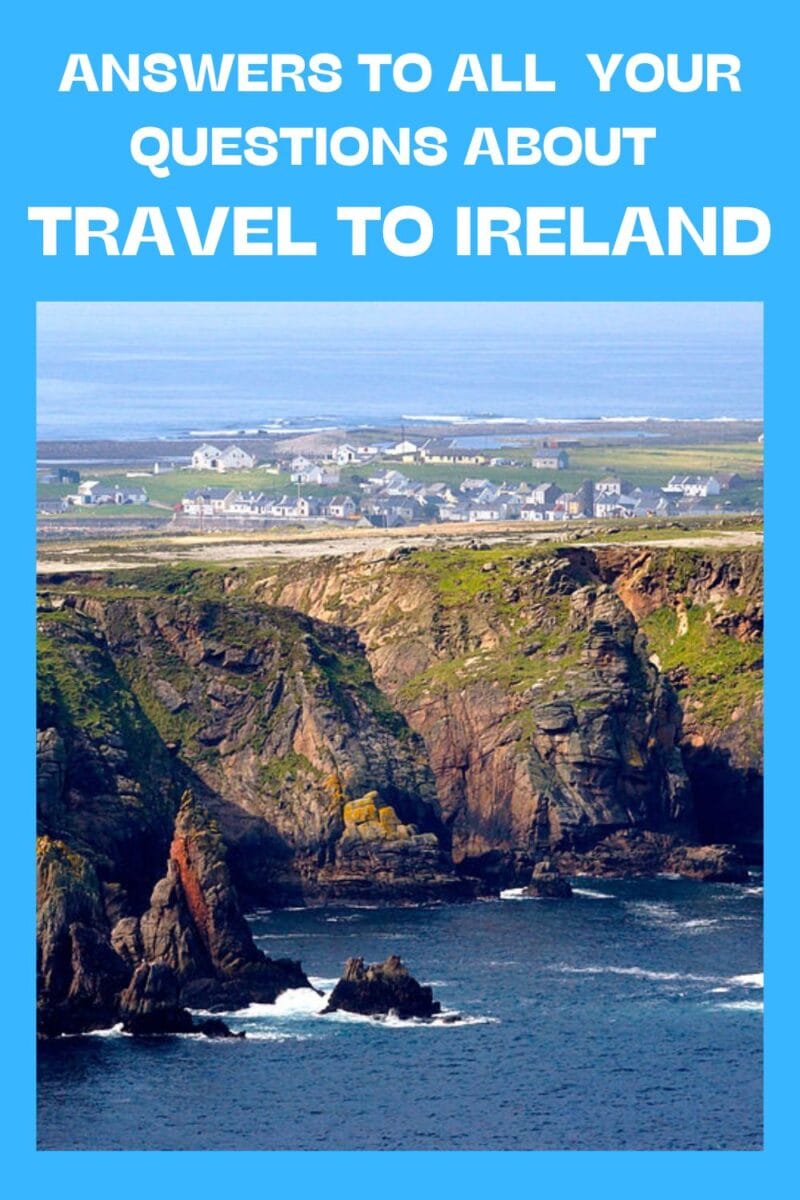Answers to frequently asked questions about travel to Ireland
Traveling around Ireland is a dream for many, thanks to our breathtaking landscapes, rich history, and lively culture that attract visitors from around the globe. However, before you set off on your adventure to the Emerald Isle, it’s only natural to have a few burning questions about what awaits you. From the best time to visit to what essentials to pack, there are plenty of common queries that pop up when planning a trip to Ireland.
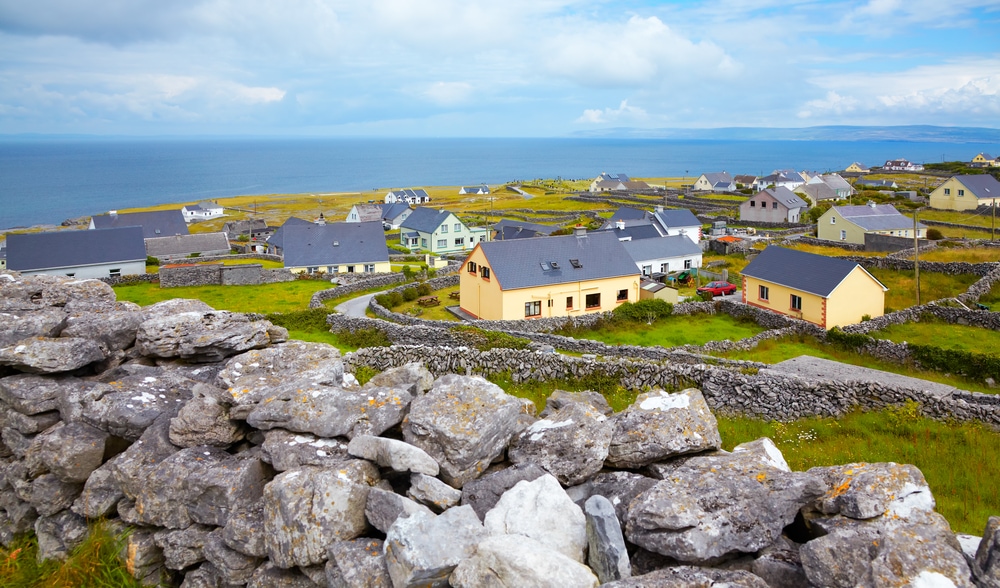
I made the move back to Ireland around 8 years ago. I was born in Northern Ireland but moved to Canada at the age of 8 and obtained my Irish passport so I could travel extensively in Europe and eventually move to Ireland (Donegal to be precise). Fortunately having an Irish passport allows me to travel all over Europe and stay as long as I like, but I spend a lot of time based in Ireland and travelling the country.
Since then I have been asked dozens of questions about moving to Ireland, retiring in Ireland and any and all questions about travel to Ireland. Hopefully in answer to most of those questions here are my answers to all the questions you may have about traveling to Ireland.
Whether it’s about the best places to visit, the local cuisine, or the culture and customs of Ireland, there are endless questions that curious travelers may have before embarking on their journey. By addressing these common questions and doing some research beforehand, you can ensure a smooth and memorable trip to the enchanting land of Ireland.
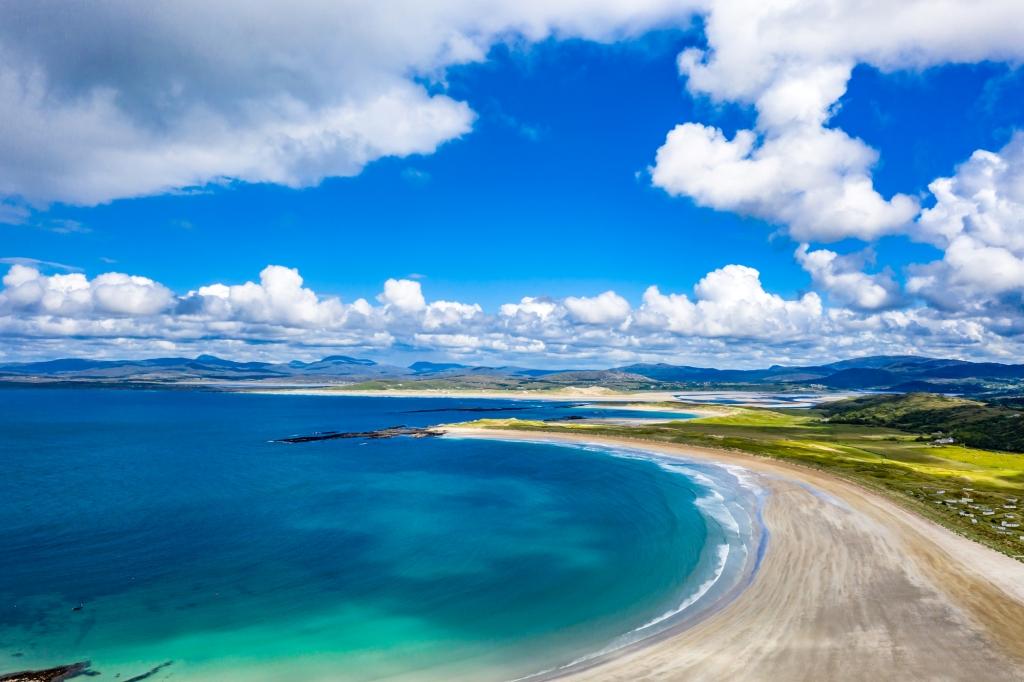
- Answers to frequently asked questions about travel to Ireland
- FAQS about travel to Ireland
- What travel documents do I need to visit Ireland?
- Types of Visas
- What is the currency used in Ireland?
- Can I visit Northern Ireland with an Irish visa?
- Where can I find travel tips for my Ireland trip?
- Are there specific vaccination requirements to enter Ireland?
- Can I take a day trip to the Cliffs of Moher?
- How can I find accommodations in Ireland?
- Accommodation – BnB’s, Hotels etc and your burning questions
- Online Booking Platforms – where to stay in Ireland
- Weather and Packing Tips
- What to pack for Ireland
- Transportation Options
- Top Attractions and Things to Do
- Top Attractions in Northern Ireland
- Food and Dining Experiences
- Best pubs and restaurants in Ireland
- Cultural Insights and Etiquette
- What not to do in Ireland
- Safety and Health Tips
- Tips for Safe Travel
- Festivals and Events
- Budgeting and Money Matters
- Budget for your trip to Ireland
- FAQS about travel to Ireland
Xyuandbeyond is reader-supported. When you buy through links on our site, we may earn an affiliate commission. You can read my privacy policy here.
As of the latest trends and interests in traveling to Ireland, some of the most searched-for topics and articles typically include:
FAQS about travel to Ireland
What travel documents do I need to visit Ireland?
To travel to Ireland, you will need a valid passport with a minimum validity of six months beyond your intended stay. Depending on your nationality, you may also need a visa to enter the country.
Visa and Entry Requirements: The visas required to visit Ireland depend on your nationality and the purpose of your visit. Here is a general overview:
Visa-Exempt Countries Citizens of certain countries do not require a visa to enter Ireland for short stays (up to 90 days). Some of these countries include: European Union (EU) and European Economic Area (EEA) member states and the following: the United States, Canada, Australia, New Zealand, and Japan.
For a complete list of visa-exempt countries, you can check the Irish Naturalisation and Immigration Service (INIS) website.
Countries Requiring a Visa: Citizens of countries not on the visa-exempt list will need a visa to visit Ireland. This includes most African, Asian, and Middle Eastern countries.
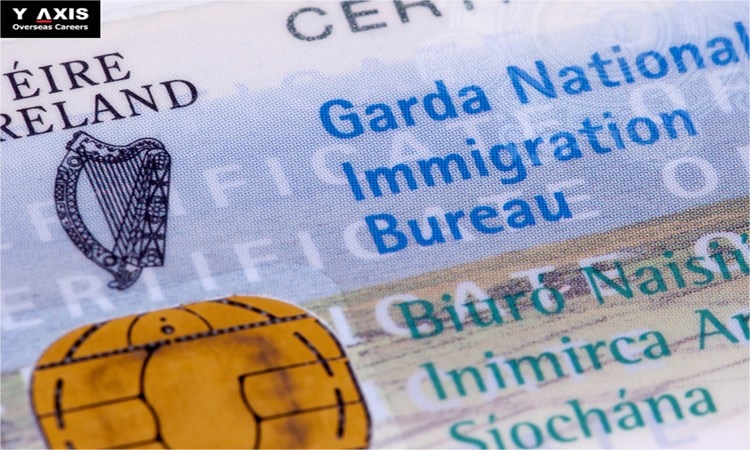
Types of Visas
- Short Stay ‘C’ Visa: For stays up to 90 days, such as for tourism, business, or visiting family/friends.
- Long Stay ‘D’ Visa: For stays longer than 90 days, such as for work, study, or joining family.
- Transit Visa: For passing through Ireland to reach another destination.
- UK Visa: Ireland is not part of the Schengen Area, so a Schengen visa will not allow entry into Ireland. However, there is a British Irish Visa Scheme (BIVS) for nationals of India and China, allowing travel to both the UK and Ireland on a single visa.
- Common Travel Area (CTA): Citizens of the UK do not need a visa to enter Ireland due to the CTA agreement.
For the most accurate and up-to-date information, including detailed visa requirements and application procedures, you should consult the official Irish immigration website or contact the nearest Irish embassy or consulate.
What is the currency used in Ireland?
The official currency used in Ireland is the euro. The Republic of Ireland uses the Euro and Northern Ireland uses British pound sterling. Try not to get any Northern Ireland pounds as they are unusable anywhere except N. Ireland.
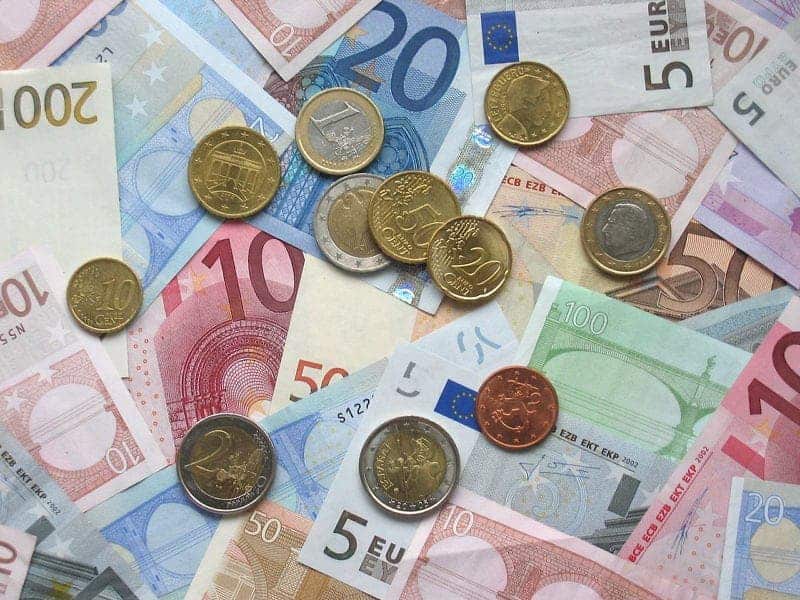
Can I visit Northern Ireland with an Irish visa?
Yes, if you have a valid visa for the Republic of Ireland, you can visit Northern Ireland without needing a separate visa. As both regions are part of the island of Ireland, a single visa suffices for travel between them. If you are from a Visa exempt country you won’t need anything to visit Northern Ireland, in fact you probably won’t even notice you’ve entered the country as there are no border guards or security checks.
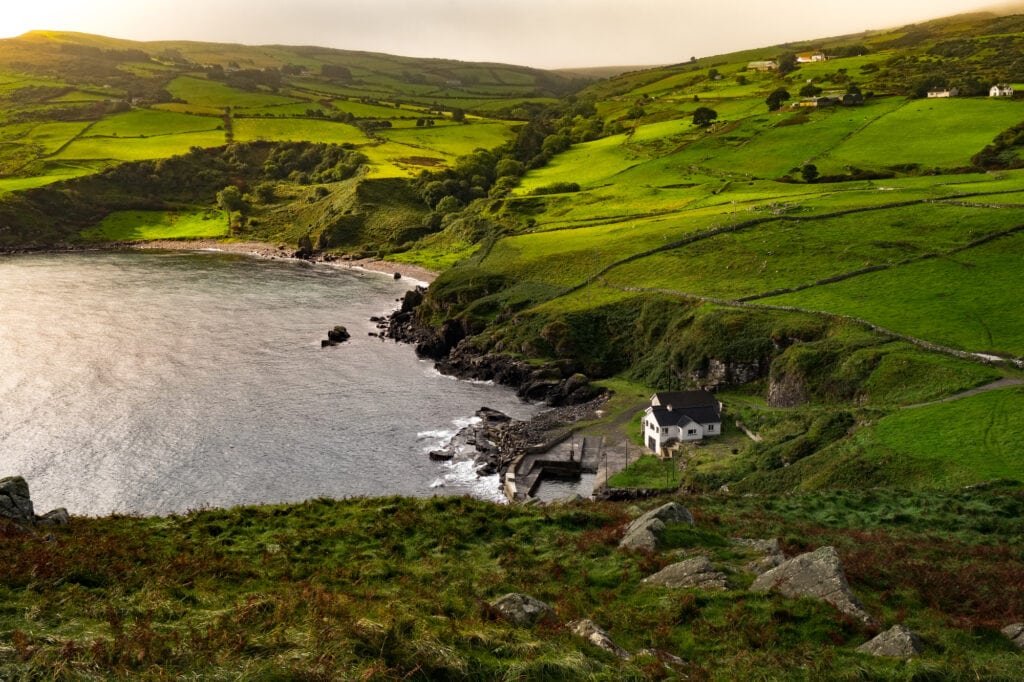
Where can I find travel tips for my Ireland trip?
For valuable travel information and helpful travel tips for your visit to Ireland, consider checking with the nearest embassy or consulting online resources such as travel guides and forums. Personally since I live here I simply check with the different tourist boards or when I do a Google search I type in travel to Ireland Blog – this is because Google is trying to rule and make money out of bloggers and travel writers like myself by putting useless things like Reddit and Yelp at the top of the search screens.
Fáilte Ireland Jurisdiction: Republic of Ireland. Responsibilities: Promotes tourism and supports tourism businesses in the Republic of Ireland.
Tourism Northern Ireland: Jurisdiction: Northern Ireland (part of the United Kingdom). Responsibilities: Promotes Northern Ireland as a tourist destination.
Tourism Ireland: Jurisdiction: The entire island of Ireland
Are there specific vaccination requirements to enter Ireland?
It is advisable to check with your local immigration service or healthcare provider regarding any required vaccinations for entering Ireland. Make sure you are up to date with routine vaccines as well. As of the most recent guidelines, there are no mandatory vaccines required for travelers to Ireland. However, it is generally recommended that travelers are up to date with routine vaccinations including Covid.
Can I take a day trip to the Cliffs of Moher?
Yes, the Cliffs of Moher are a popular tourist destination in Ireland, and many visitors opt for a day trip to enjoy the stunning views. Consider booking a guided tour or renting a car for a more flexible itinerary.
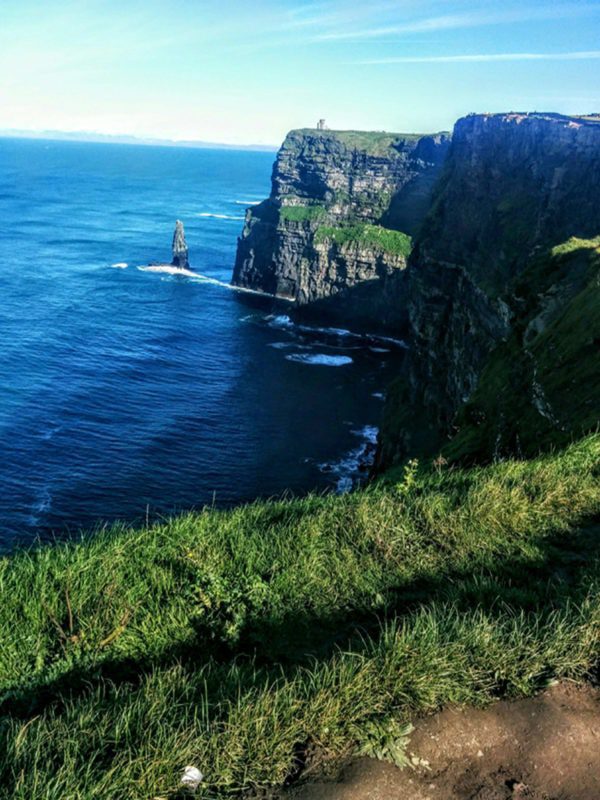
How can I find accommodations in Ireland?
Accommodation is another hot topic when it comes to traveling to Ireland. From charming bed and breakfasts to luxurious castles, there is no shortage of unique places to stay in Ireland. But how do you find the best accommodation that suits your budget and preferences?
Many travelers want to know about the different types of accommodations available and how to book them in advance to secure the best deals. When looking for places to stay in Ireland, consider options such as bed and breakfast (B&B) establishments, hotels, guesthouses, and self-catering accommodations.
Websites like TripAdvisor can be useful for reading reviews but in truth if you find a well reviewed place go direct to their website if there is one you may get a better deal.
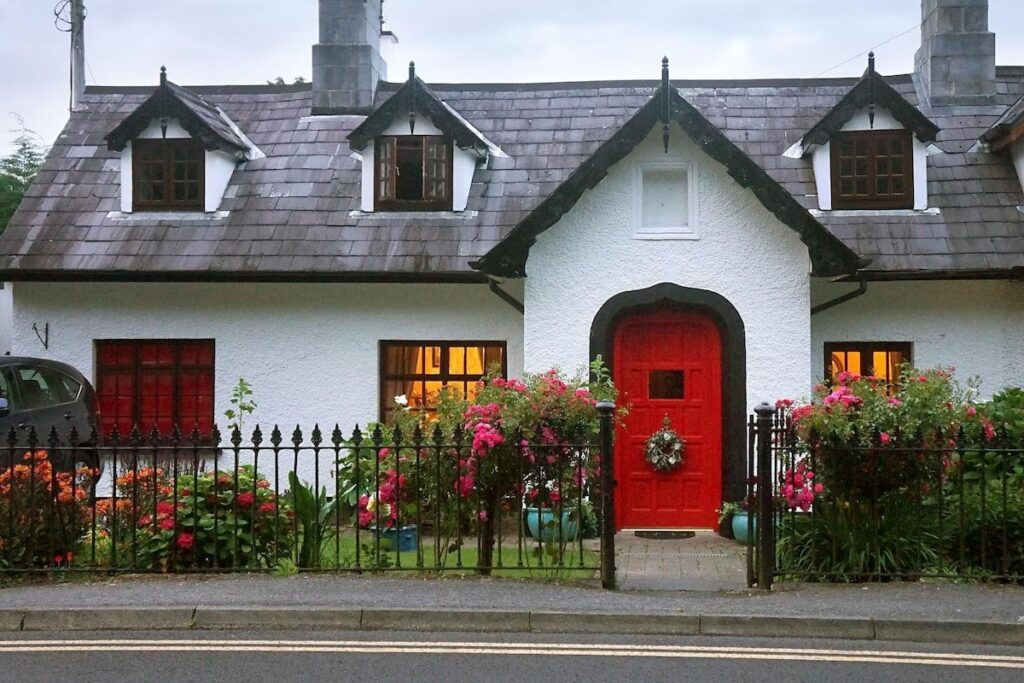
Accommodation – BnB’s, Hotels etc and your burning questions
Are washcloths provided? Washcloths (facecloths) may not be provided in all accommodations. It’s a good idea to bring your own if this is important to you.
Why are there no top sheets on the beds? This is because the top sheet is integrated within the duvet cover – no top sheets are required as the covers are washed after every guest.
Do Irish accommodations use top sheets? Many accommodations in Ireland use a duvet without a top sheet, similar to European bedding styles. Some places might provide top sheets upon request.
What kind of beds are common in Irish accommodations? You’ll find a variety of bed sizes, including twin, double, queen, and king-sized beds. Twin beds are common in B&Bs and smaller guesthouses.
Are extra pillows and blankets available? Most accommodations can provide extra pillows and blankets upon request. It’s best to ask when booking or check with the front desk upon arrival.
Are en-suite bathrooms standard? En-suite bathrooms are common in hotels, guesthouses, and B&Bs. However, some budget accommodations and older establishments might have shared bathroom facilities.
Do accommodations provide toiletries? Hotels typically provide basic toiletries like shampoo, conditioner, and soap. B&Bs and guesthouses might offer fewer amenities, so consider bringing your own.
Is Wi-Fi available? Most accommodations offer free Wi-Fi, but the quality and speed can vary. It’s best to check reviews or ask the property directly if reliable internet is important to you.
Are tea and coffee making facilities available in rooms? Many accommodations provide tea and coffee making facilities in rooms, especially in hotels and B&Bs, but double check if that is something you want.
Is there air conditioning in rooms? Air conditioning is not common in Irish accommodations due to the mild climate. Most places rely on heating and natural ventilation.
Are accommodations wheelchair accessible? Accessibility varies widely. It’s crucial to confirm directly with the property if you have specific accessibility needs.
Do accommodations offer parking? Many hotels and B&Bs offer free or paid parking, but availability can be limited in city centers. Always check in advance if you need parking.
Are laundry facilities available? Larger hotels might have laundry services or self-service laundry rooms. For extended stays, consider accommodations with laundry facilities or nearby laundromats. You will often find washing machines and large dryers in the parking lots of gas stations
Is breakfast included? Many B&Bs and some hotels include breakfast in the room rate. Breakfast can range from a full Irish breakfast to continental options. A lot of B&B’s these days are called self-catering which means they will provide a few bits and pieces such as tea bags, coffee, milk and a loaf of bread or perhaps a welcome basket so head to the nearest Spar shop, Lidls or Aldi’s to get your supplies.
Are there on-site restaurants? Larger hotels often have on-site restaurants. In smaller B&Bs or guesthouses, you’ll need to explore local dining options.
Can I request early check-in or late check-out? Policies vary, but many places will try to accommodate requests for early check-in or late check-out. It’s best to arrange this in advance or check if the place can at least hold your luggage until check in time so you can go and explore.
Are pets allowed? Some accommodations are pet-friendly, but it’s essential to check their pet policy and inform them in advance if you’re traveling with pets.
When attempting to find a B&B in Ireland there are several online resources. I avoid Air B&B because of the many failures of the platform including add on fees that mean the final bill can be horrendous. Finding Bed and Breakfasts (B&Bs) in Ireland is relatively straightforward with several resources available. Here’s a guide to help you locate the perfect B&B for your stay:
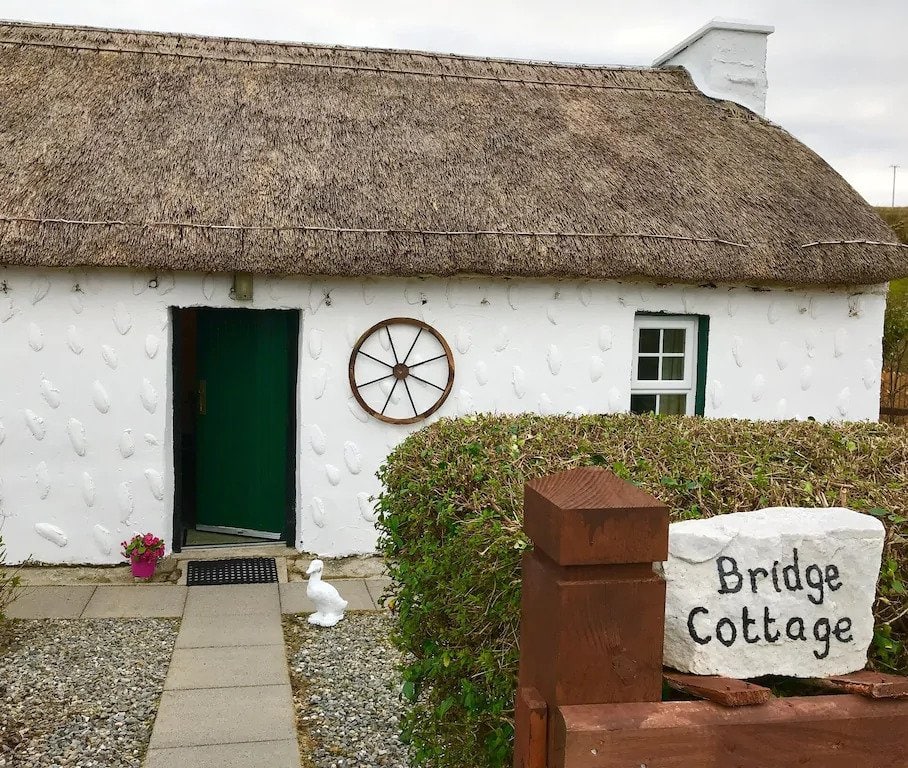
Online Booking Platforms – where to stay in Ireland
- Booking.com: Booking ffers a wide selection of B&Bs, hotels, private homes and more across Ireland with reviews, photos, and detailed descriptions.
- Airbnb: Offers a wider variety of properties, including entire homes, apartments, single rooms, shared spaces, and unique accommodations like treehouses, yurts, and houseboats. It caters to a broader audience, including solo travelers, couples, and groups.
- Expedia: Expedia lists numerous B&B options along with hotels, allowing you to compare prices and amenities.
- TripAdvisor: TripAdvisor provides reviews and ratings from travelers, helping you choose highly recommended B&Bs.
- VRBO: VRBO (Vacation Rentals by Owner) is an online marketplace that connects property owners with travelers seeking short-term vacation rentals. It is part of the Expedia Group and operates similarly to platforms like Airbnb. It primarily focuses on entire homes, cabins, villas, and condos. It caters to travelers looking for more traditional vacation rentals, often ideal for families and larger groups.
- Ireland’s Blue Book: Ireland’s Blue Book: Ireland’s Blue Book is a prestigious collection of Irish country houses, historic hotels, castles, and restaurants. Established in 1974, this guide showcases some of the finest and most unique accommodations and dining experiences across Ireland.
Specialized Websites
- Ireland B&B Network: A dedicated website offering a wide range of B&Bs across Ireland, often with special offers and detailed property information.
Local Tourist Information
- Tourist Offices: Visit local tourist information centers for recommendations and brochures on B&Bs in the area.
- Discover Ireland: The official tourism website for Ireland provides a comprehensive list of accommodations, including B&Bs.
35 of the Coolest & Unique Places To Stay In Ireland
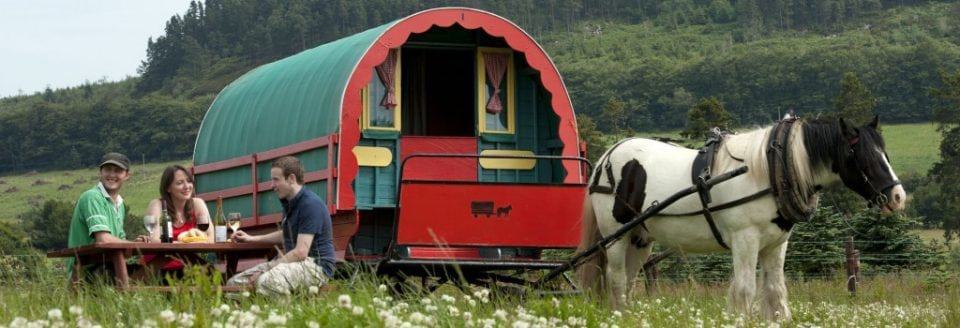
Weather and Packing Tips
It’s Ireland and it will rain trust me on this fact. One of the most asked questions about travel to Ireland is undoubtedly about the weather. Known for its unpredictable climate, Ireland can experience four seasons in one day, making packing a challenge. Many travelers wonder when the best time to visit is, to avoid the rainy season and make the most of the pleasant weather. Understanding the weather patterns and packing accordingly can greatly enhance your overall travel experience.
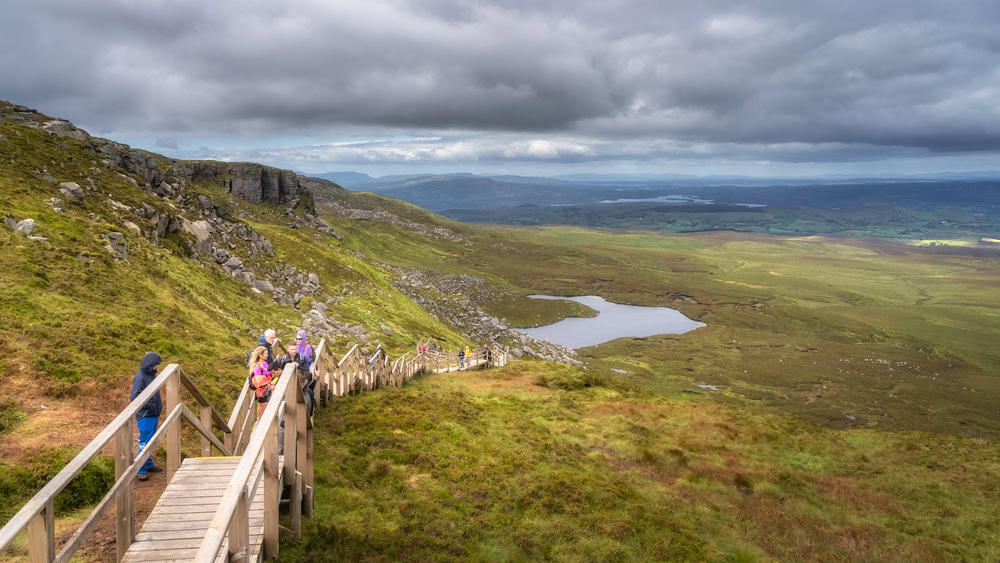
The best season to visit Ireland is generally from late spring to early autumn, specifically May through September. During these months, the weather is milder, with longer daylight hours and the lush landscape in full bloom. Summer, from June to August, offers the warmest temperatures, typically ranging from 15°C to 20°C (59°F to 68°F), and a plethora of festivals and outdoor activities. May and September are also excellent times to visit, providing good weather with fewer crowds. This period allows travelers to fully enjoy Ireland’s scenic beauty, historic sites, and vibrant cultural events.
What to pack for Ireland
When packing for a trip to Ireland, it’s essential to prepare for variable weather. Bring layers, including a mix of t-shirts, long sleeves, and sweaters, to accommodate fluctuating temperatures. A waterproof jacket and sturdy, waterproof footwear are crucial, as rain is common year-round. Even in summer, evenings can be cool, so pack a warm fleece or jacket. Don’t forget an umbrella and a hat to shield against rain and wind. Comfortable walking shoes are a must for exploring cities and countryside. Additionally, include travel adapters for Irish electrical outlets, and consider packing a small backpack for day trips.
SIM card and cellphones
If you want to be able to phone home via your cellphone at no extra cost you can download and set up WhatsApp before you leave this will allow you to make phonecalls at now cost just make sure whoever you are calling has the WhatsApp application on their phones as well. You can also use Facebook’s phone system which is free.
If you want to get internet outside of your accommodation make sure your phone is unlocked before you leave. When you get to your destination purchase a SIM card and pop it into your phone. These can be picked up almost everywhere for around £10 to euros and can be used for google maps and other applications. Your phone mut be unlocked otherwise you may end up paying $10 a day for internet.
Transportation Options
Getting around Ireland on public transport is convenient and efficient, particularly in urban areas and popular tourist destinations like Dublin, Galway, or Belfast. The country has a good network of buses and limited network of trains operated by Bus Éireann and Iarnród Éireann (Irish Rail), connecting major cities, towns, and rural areas.
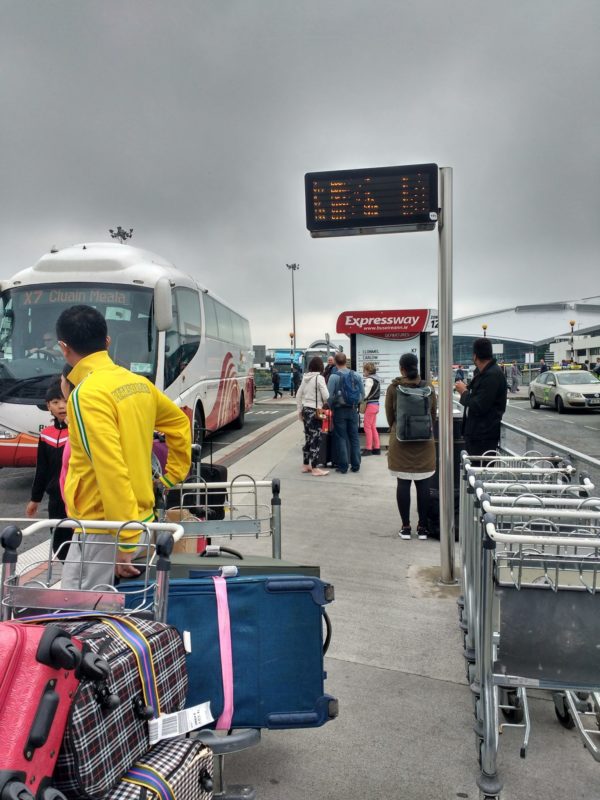
If you have limited time in Ireland your best bet is renting a car as the buses and trains can take hours to get to areas and some places like the Cliffs of Moher and other famous locations have no public transportation to get to them.
Dublin, the capital, boasts an excellent public transport system with buses, the DART (Dublin Area Rapid Transit), and the Luas tram system. For exploring Northern Ireland, Translink operates comprehensive bus and rail services. While public transport is reliable in most regions, renting a car might be preferable for reaching remote areas and enjoying scenic drives along the Wild Atlantic Way or the Ring of Kerry.
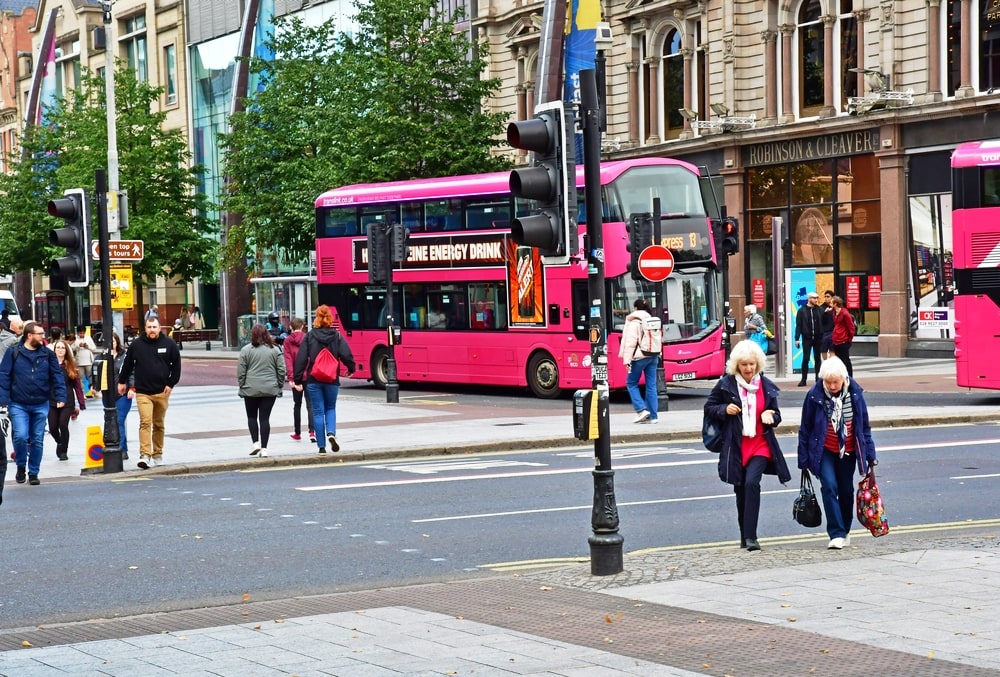
Top Attractions and Things to Do
Here’s a list of the top attractions in both Ireland and Northern Ireland, highlighting their unique beauty and historical significance:
Top Attractions in Ireland
Cliffs of Moher (County Clare) Stunning sea cliffs offering breathtaking views of the Atlantic Ocean.
Ring of Kerry (County Kerry) A scenic drive through mountains, lakes, and coastal landscapes.

Dublin Castle (Dublin) Historic castle complex and gardens, now a government building and tourist attraction.
Trinity College and the Book of Kells (Dublin) Ireland’s oldest university, housing the famous medieval manuscript.
Guinness Storehouse (Dublin) Interactive museum dedicated to the history of Guinness beer, with a rooftop bar offering panoramic city views.
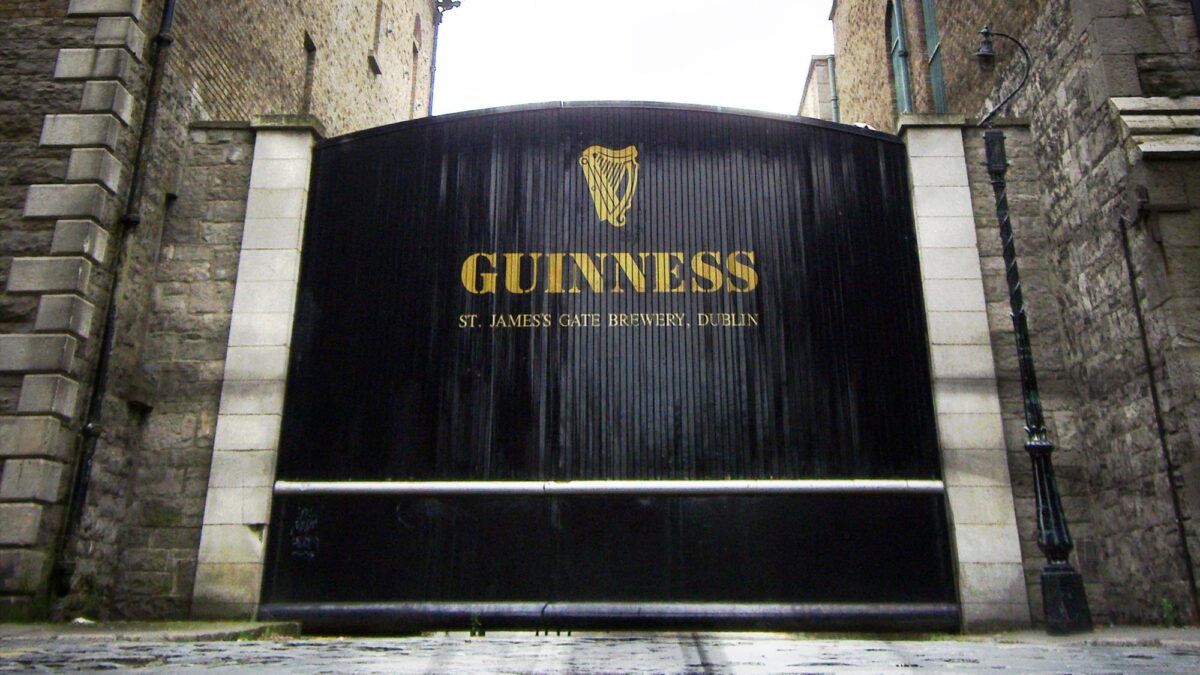
Kilmainham Gaol (Dublin) Historic prison turned museum, significant in Ireland’s struggle for independence.
The Burren (County Clare) Unique karst landscape with rare flora, caves, and ancient monuments.
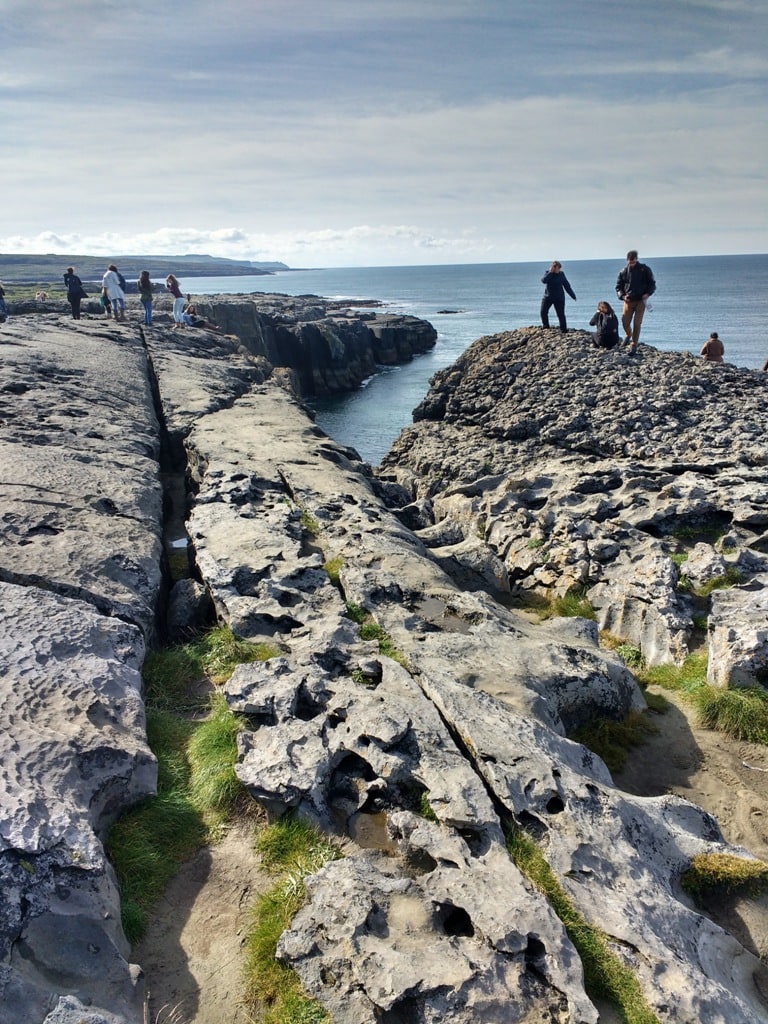
Killarney National Park (County Kerry) Beautiful park with lakes, mountains, and the 19th-century Muckross House and the famous Ring of Kerry.
Blarney Castle and Stone (County Cork) Medieval castle known for the Blarney Stone, which legend says grants the gift of eloquence.
Rock of Cashel (County Tipperary) Historic site with medieval buildings and an ancient cathedral.
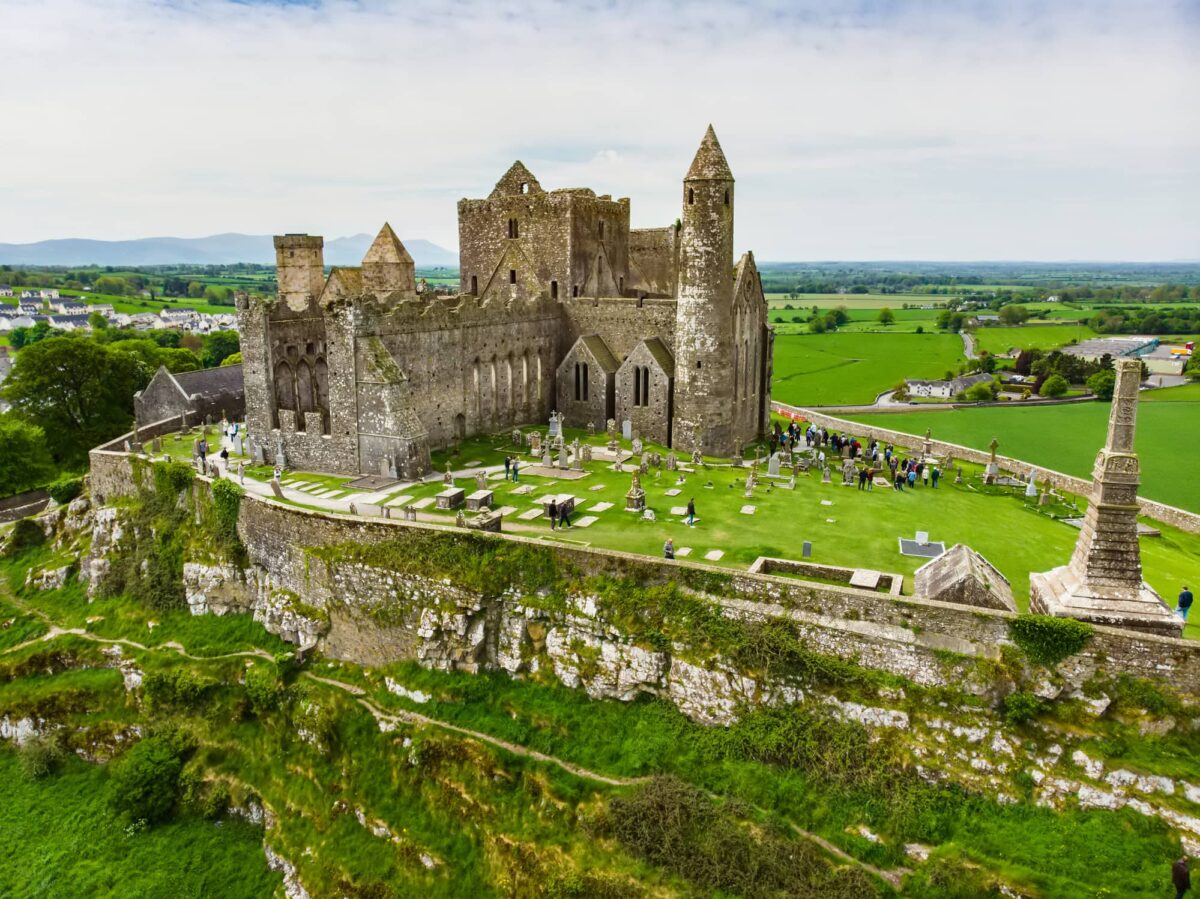
Galway City and Eyre Square (County Galway) Vibrant city known for its arts scene, historic buildings, and lively pubs.
Dingle Peninsula (County Kerry) Scenic coastal area with charming villages, beaches, and archaeological sites.
Newgrange (County Meath) Prehistoric monument older than Stonehenge and the pyramids of Egypt.
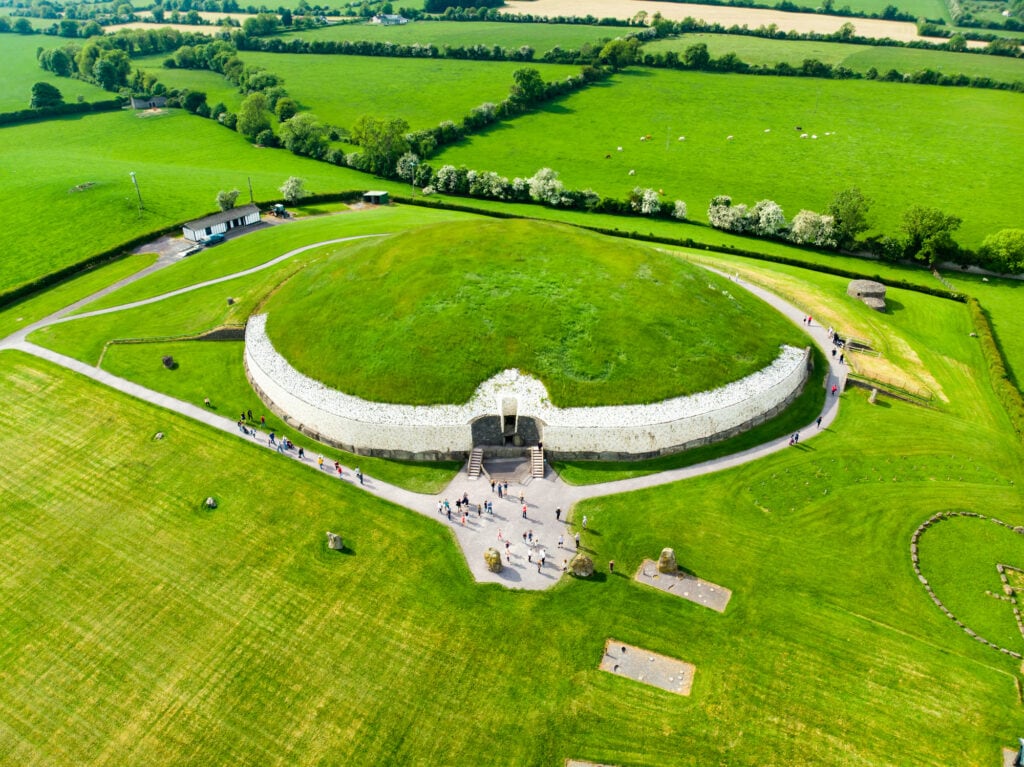
Connemara National Park (County Galway) Rugged landscape with mountains, bogs, and scenic views.
Skellig Michael (County Kerry) Ancient monastic site on a remote island, featured in the Star Wars films.
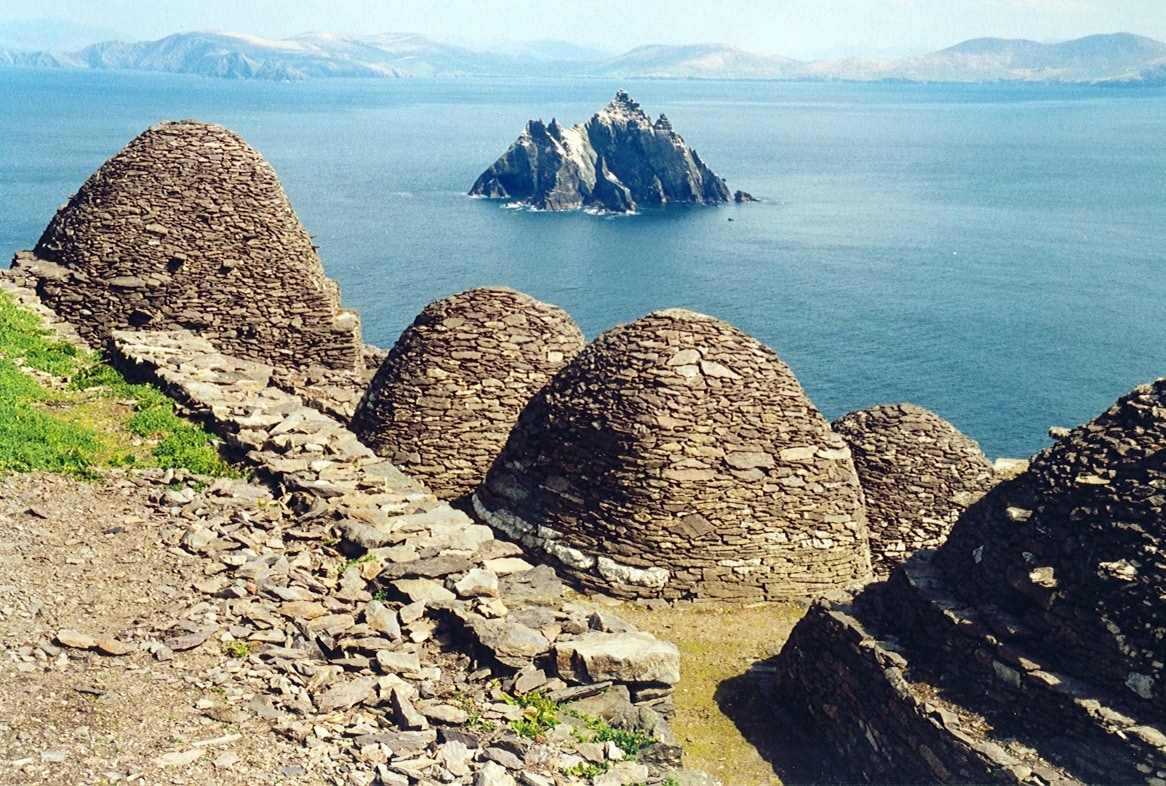
Top Attractions in Northern Ireland
Giant’s Causeway (County Antrim) Natural wonder with hexagonal basalt columns formed by volcanic activity.
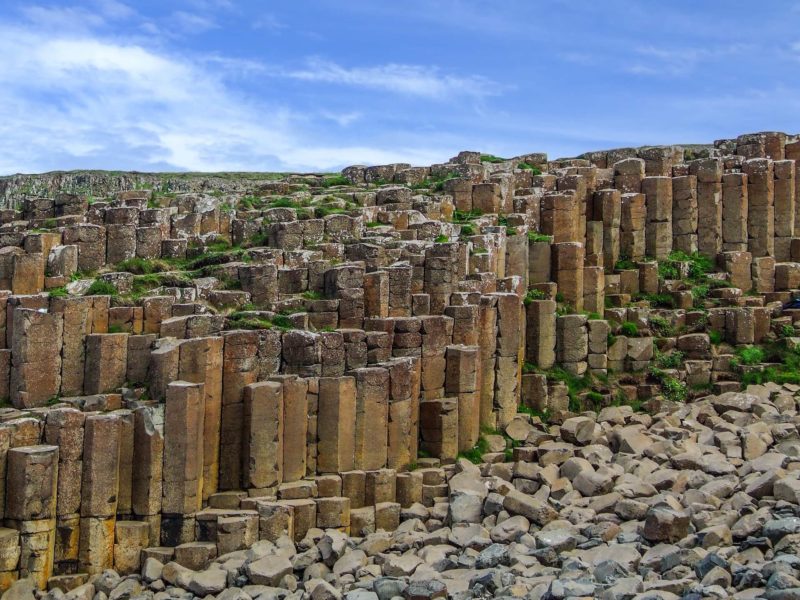
Titanic Belfast (Belfast) Museum and visitor center dedicated to the RMS Titanic, built in Belfast.
Belfast City Hall (Belfast) Iconic building with beautiful architecture and informative tours.
Carrick-a-Rede Rope Bridge (County Antrim) Suspended rope bridge offering thrilling views over the Atlantic Ocean.
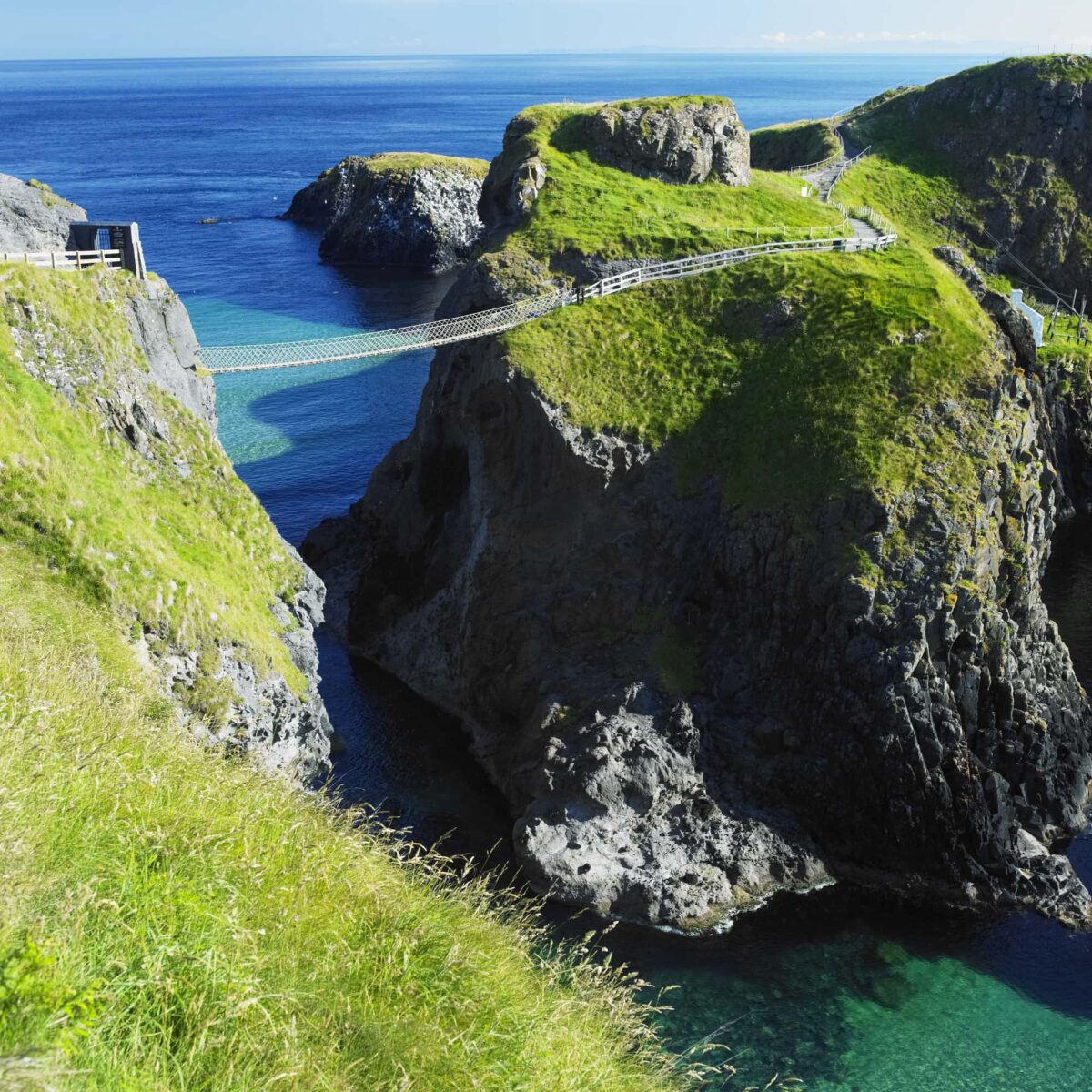
The Dark Hedges (County Antrim) Famous avenue of beech trees featured in the Game of Thrones series.
Dunluce Castle (County Antrim) Dramatic cliffside ruins of a medieval castle.
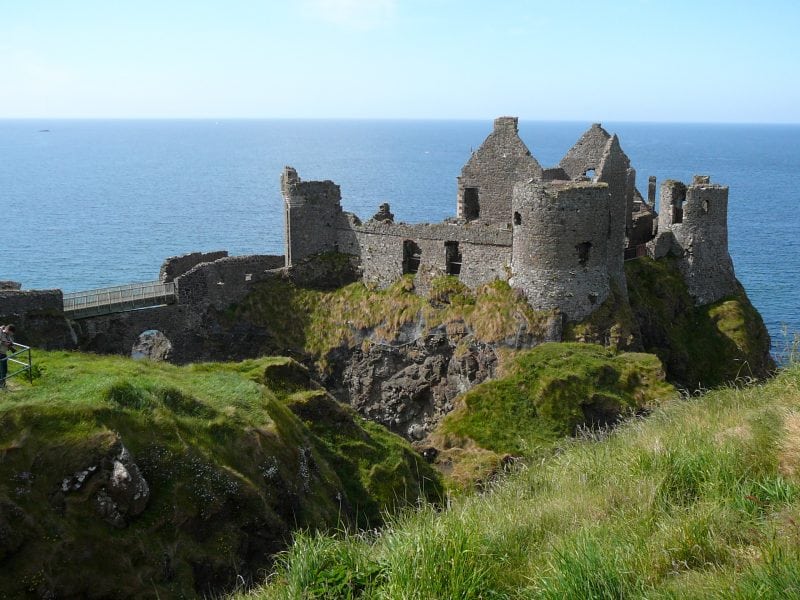
Mourne Mountains (County Down) Stunning mountain range popular for hiking and outdoor activities.
The Ulster Museum (Belfast) Museum with exhibits on art, history, and natural sciences.
St. George’s Market (Belfast) Historic market offering local produce, crafts, and food stalls.
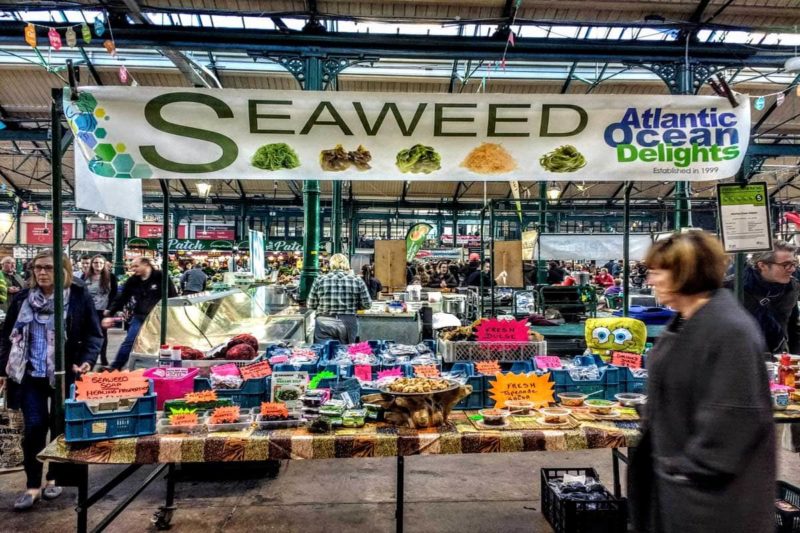
Crumlin Road Gaol (Belfast) Victorian-era prison offering guided tours and exhibitions.
Bushmills Distillery (County Antrim) The world’s oldest licensed whiskey distillery, offering tours and tastings.
Armagh’s Cathedrals (County Armagh) The city is home to two cathedrals dedicated to Saint Patrick, one Catholic and one Anglican.
Glenariff Forest Park (County Antrim) Beautiful park with waterfalls, trails, and scenic views.
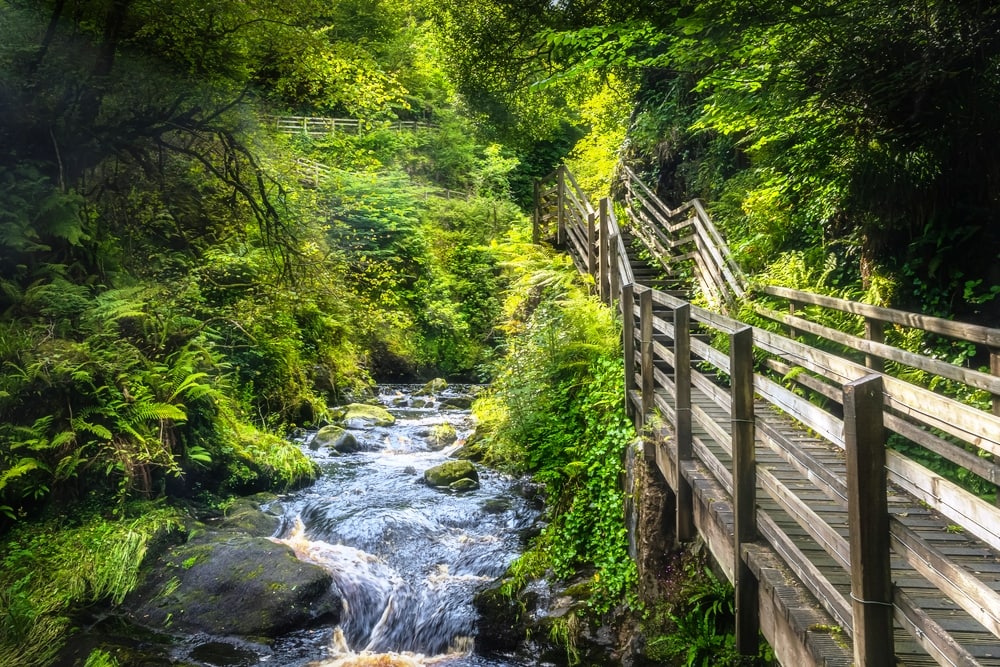
Derry City Walls (Derry/Londonderry) Well-preserved 17th-century walls encircling the historic city center. A must see is also the famous murals of Derry and memorial to Bloody Sunday.
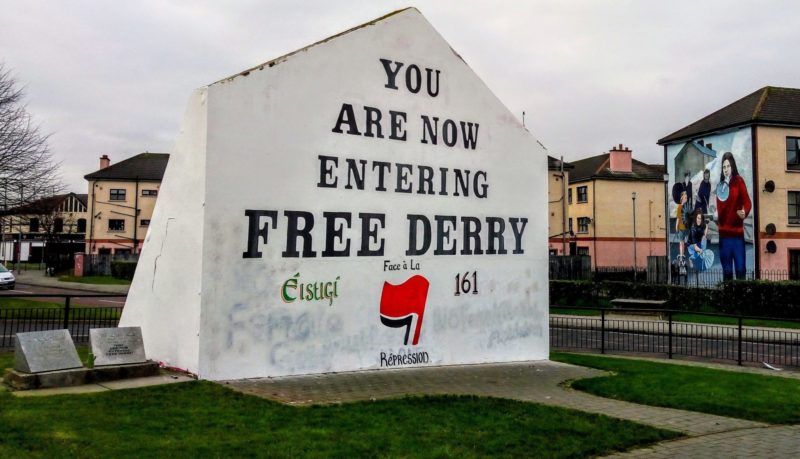
If you are looking for places, historic sites and what to do in Ireland check out this article 101 Famous Landmarks in Ireland to see or if visiting Northern Ireland this one 101 Landmarks in Northern Ireland.
Food and Dining Experiences
Food made in Ireland has come a long way in the past 10-15 years. Irish culture and traditions meant that what was cooked had to provide the most amount of calories for a hard day’s work and many traditional foods are based on 3 items, meat, veg and potatoes.
Visitors to Ireland want to try as many traditional Irish dishes as possible probably because of their memories of the foods that were prepared for them as children. But Irish food has come a long way and you will find everything here from Michelin-starred restaurants to an entire Irish food culture built on the farm-to-table ethos.
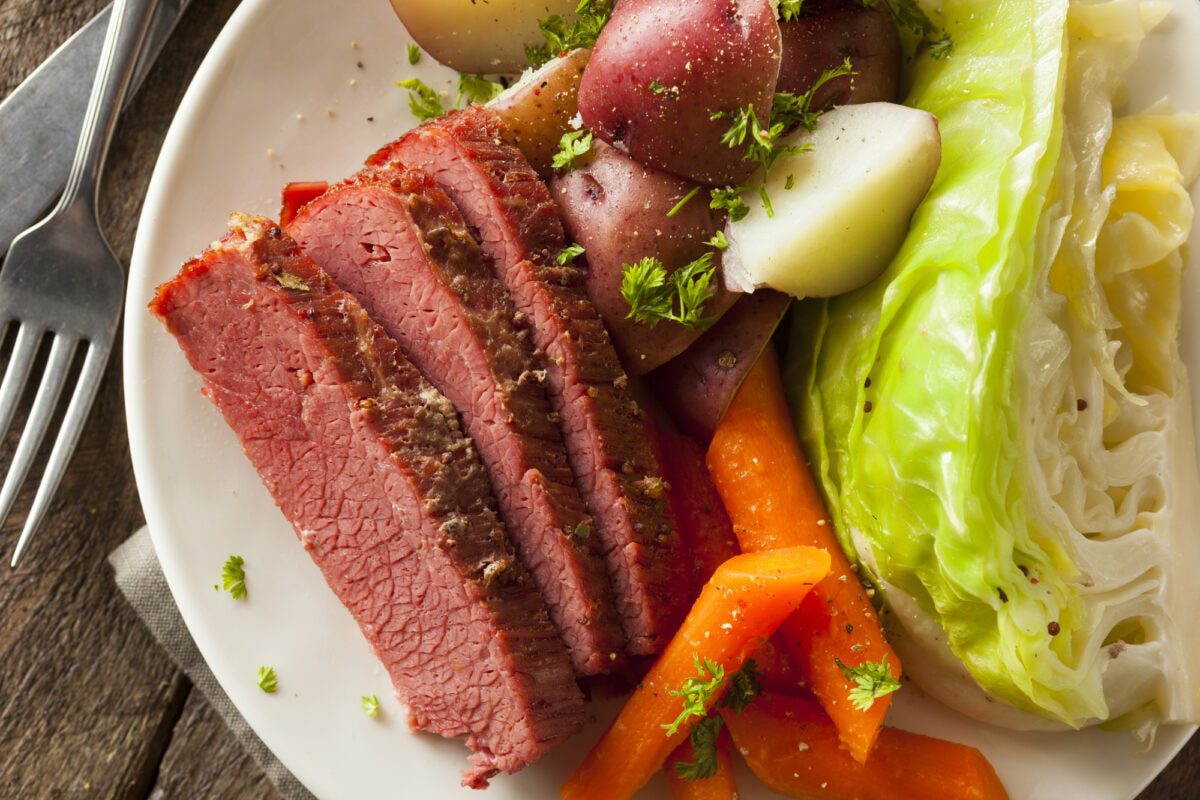
One thing you may not find in Ireland is Corned Beef and Cabbage a lot of tourists pour in for St. Patrick’s Day looking for this “traditional” dish. The Irish version of this is actually bacon and cabbage. Corned beef was not an Irish invention or product. It was the British who invented corned beef using Irish salt in the 1700s. Due to Ireland’s lower salt tax and the development of the beef market (due to British Laws), the British started the corned beef industry and began shipping the product to the USA.
Irish Stew (Stobhach Gaelach): A hearty stew made with lamb or beef, potatoes, carrots, onions, and sometimes parsnips. It’s a staple of Irish cuisine, perfect for warming up on a cold day.
Boxty: A type of potato pancake made from grated raw potatoes, mashed potatoes, and flour, then fried. It can be served as a breakfast dish or a side.
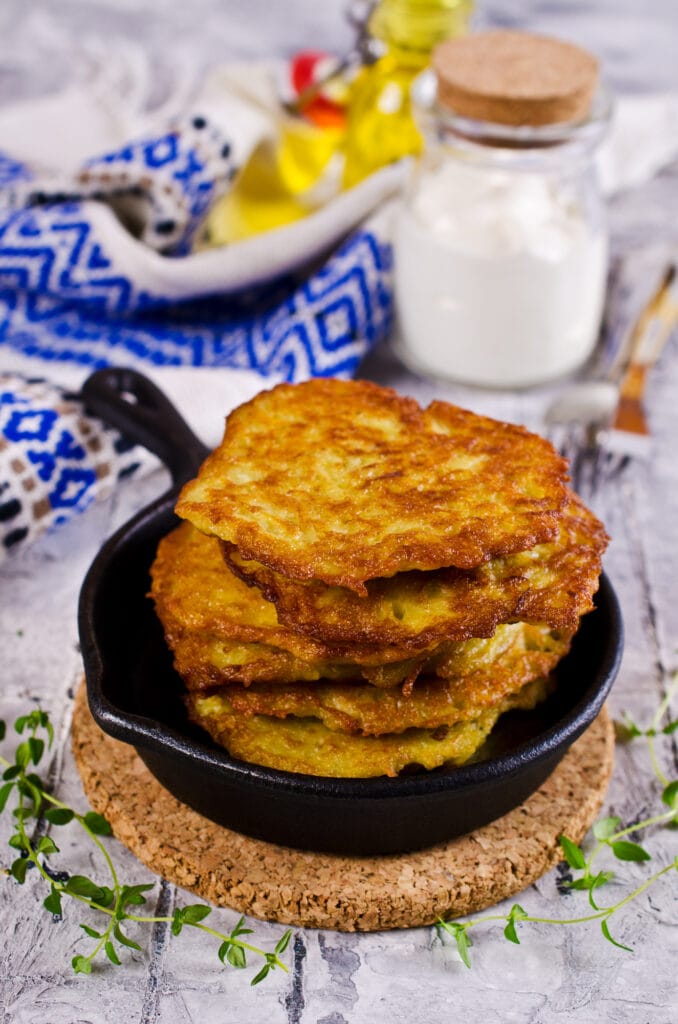
Colcannon: A traditional dish made from mashed potatoes mixed with kale or cabbage and often flavored with butter, milk, and scallions. It’s particularly popular around Halloween.
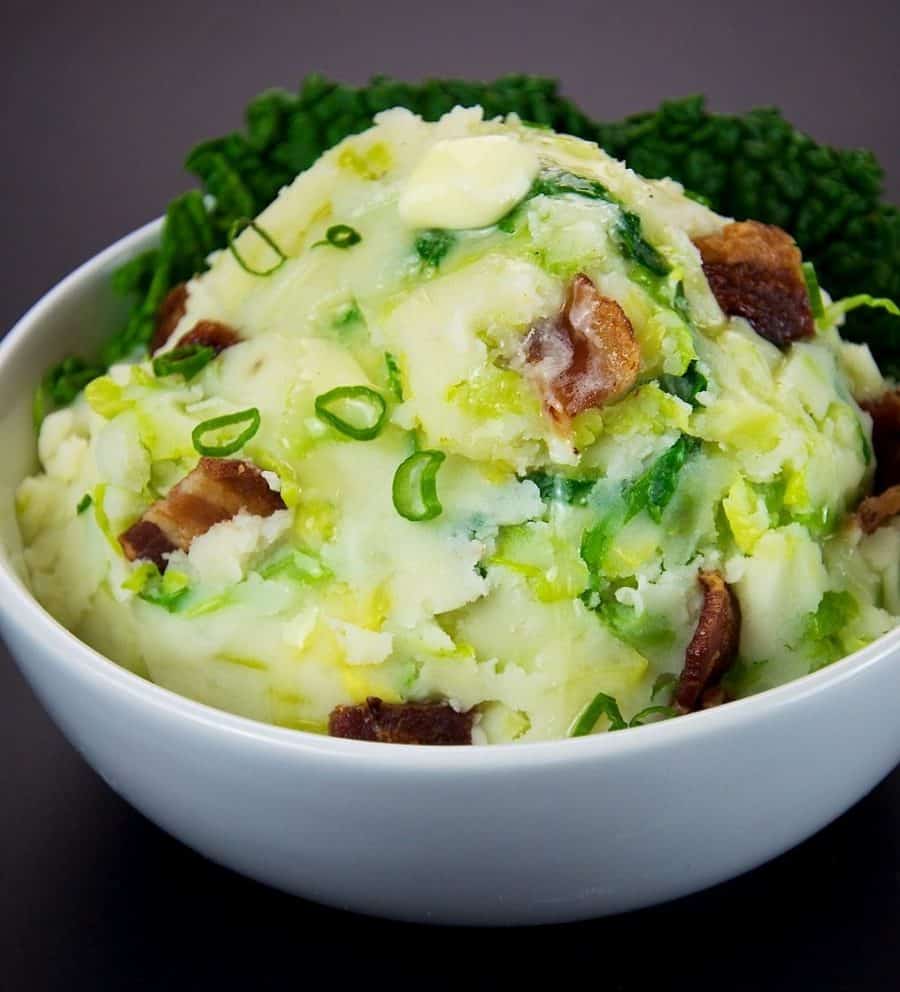
Soda Bread: A dense, slightly sweet bread made without yeast, using baking soda as a leavening agent. It’s often enjoyed with butter and jam or alongside soups and stews.
Coddle: A comforting Dublin dish made from sausages, bacon, potatoes, and onions, slow-cooked in a broth. It’s a popular choice for a warming evening meal.
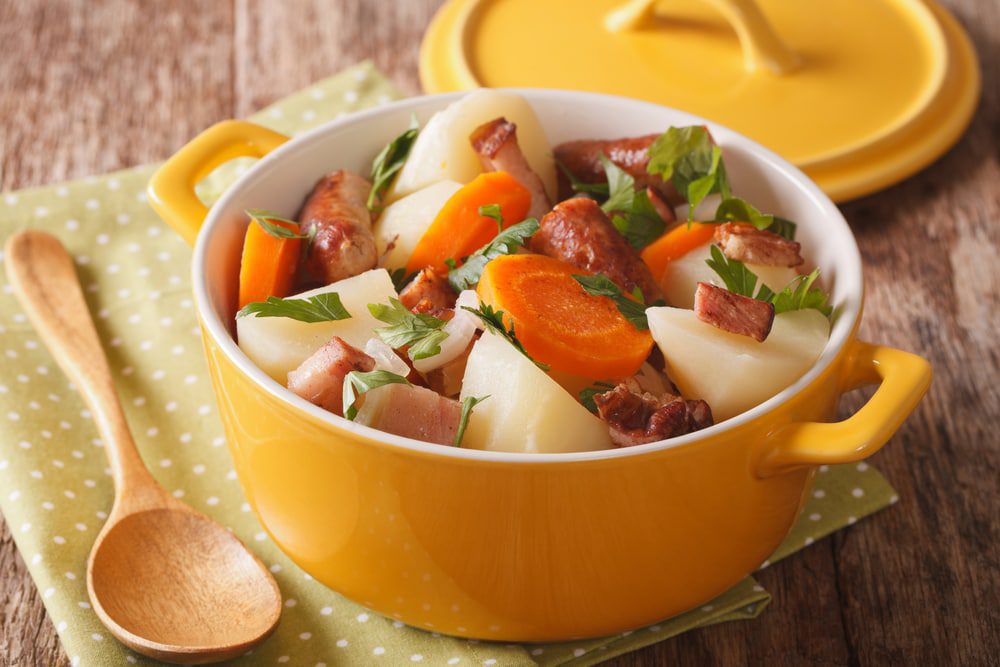
Black and White Pudding: Sausages made from pork meat, fat, and blood (black pudding) or pork meat and fat without blood (white pudding), mixed with oats or barley. They are commonly served as part of a traditional Irish breakfast.
Seafood Chowder: A creamy soup made with a mix of fresh seafood like salmon, haddock, and shellfish, along with potatoes, onions, and herbs. It’s a popular dish in coastal areas.
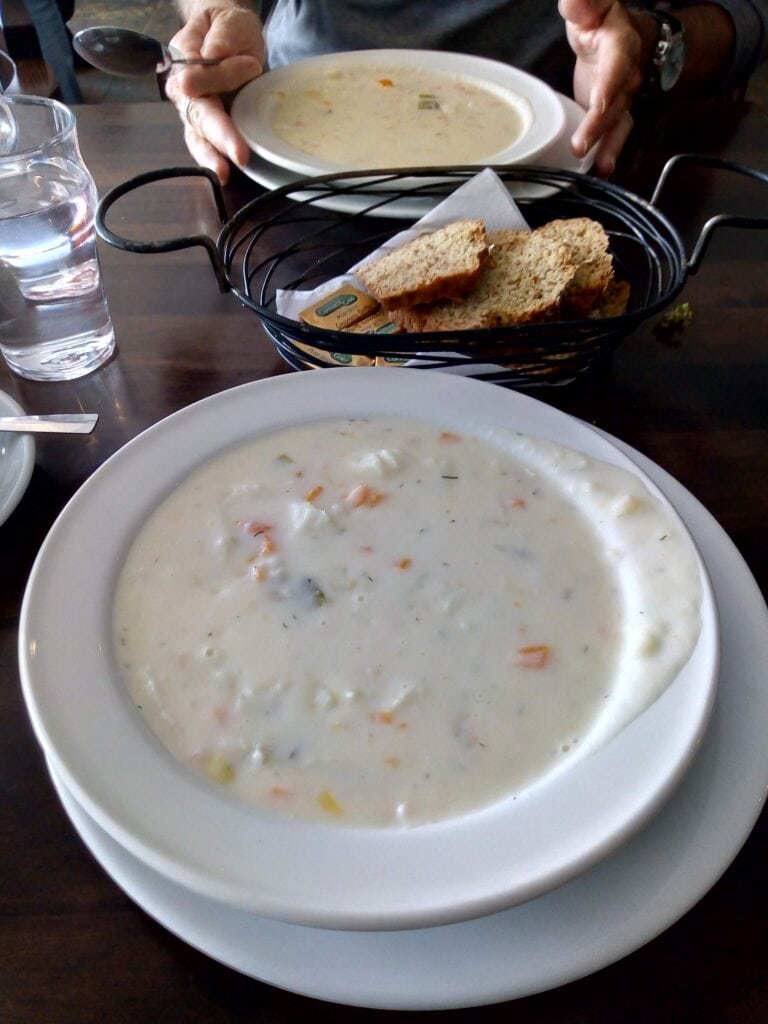
Shepherd’s Pie: A savory pie made with minced lamb (or beef for Cottage Pie), vegetables, and gravy, topped with mashed potatoes and baked until golden.
Full Irish Breakfast: A hearty meal typically consisting of fried eggs, sausages, bacon, black and white pudding, fried tomatoes, mushrooms, baked beans, and toast or soda bread. It’s often accompanied by tea.
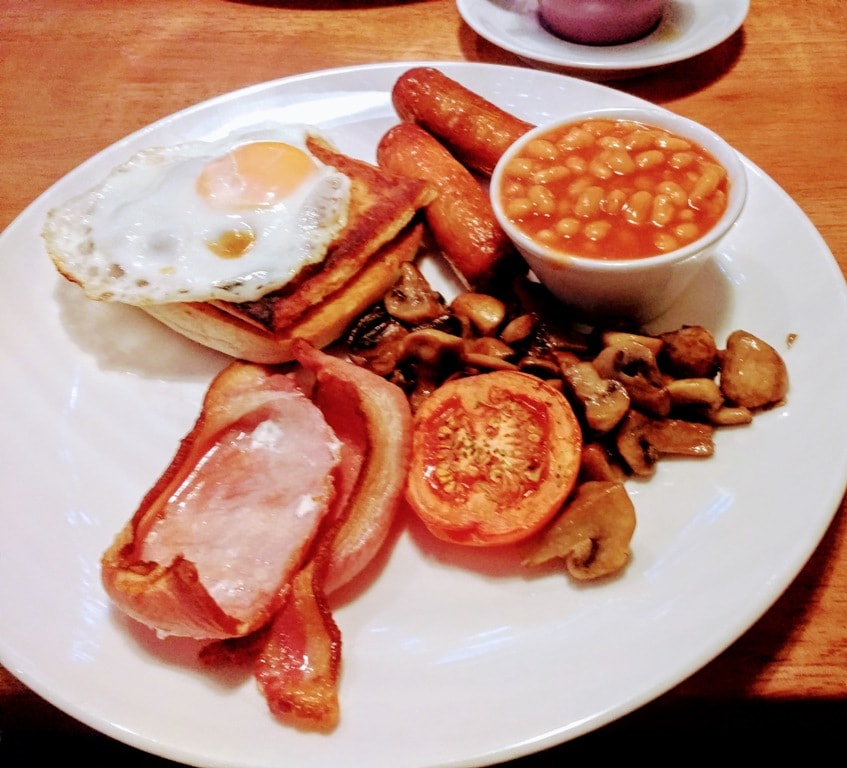
Irish Apple Cake: A traditional dessert made with fresh apples and a sweet, spiced cake batter, often topped with a crumble and served with custard or cream.
Irish Champ: Ireland’s traditional food most certainly includes champ. Champ is probably one of the best known of Irish dishes and it’s a very simple one. Mashed potatoes made with good milk, butter and scallions (spring onions). Mashed together and sometimes served as a full meal back in the day. Champ is available virtually everywhere in Ireland and these days is served with a variety of chopped foraged greens such as stinging nettle (which used to be quite popular years ago).
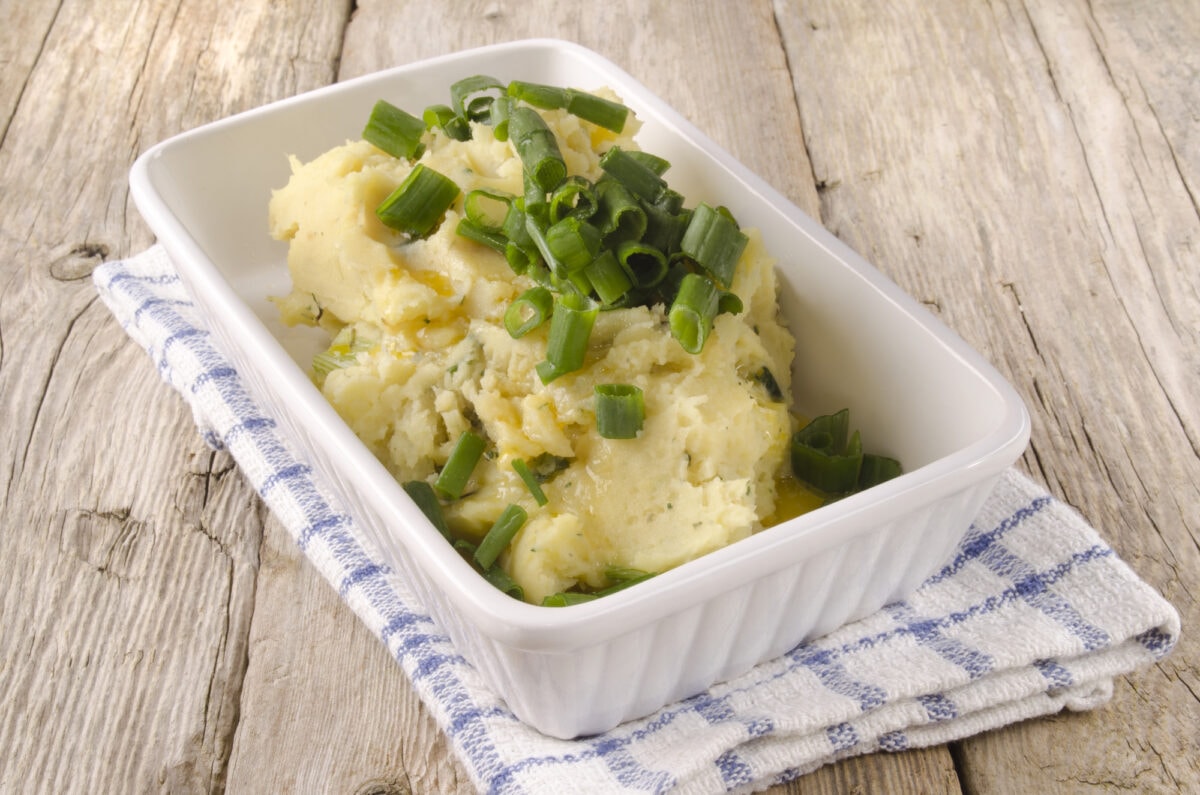
Irish Butter: I have to say a word here about Irish butter because it is true it is really the finest in the world. The reason why? Well, Irish cows are grass-fed and the butter produced from this is much higher in its fat content. This is why we love Irish butter – you could literally put it on a flip flop and it would taste good. After living in France for a while and dealing with French butter and French food culture I say give me Ireland any day.
Gammon – what is gammon? It is a beautifully cured meat from the leg of the pig, which has been brined and smoked; full of flavour you will often see it on menus throughout Ireland. It can be served for breakfast with a fried egg or as a main meal with colcannon or chips.
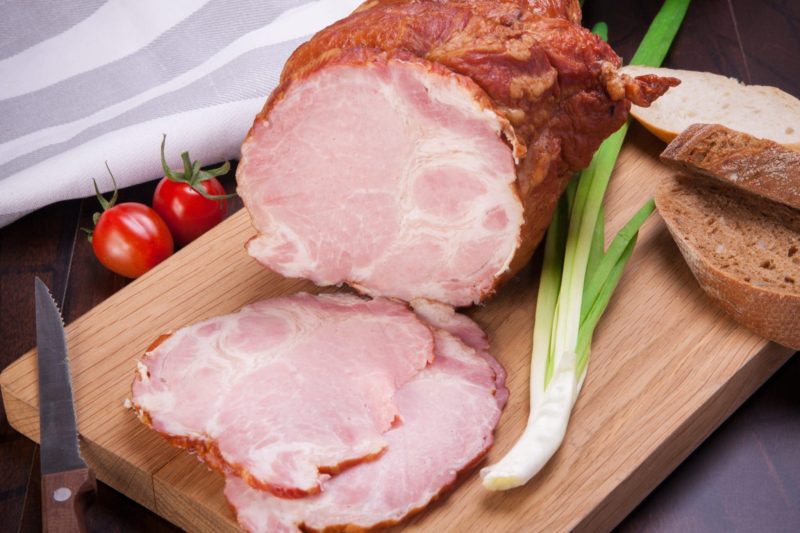
Best pubs and restaurants in Ireland
In Ireland, pubs that serve food are commonly referred to as “gastropubs” or “pubs with food”. These establishments offer a range of hearty, often traditional, Irish dishes with a pint of Black (Guinness) or lager and in some cases extravagant cocktails are now popular.
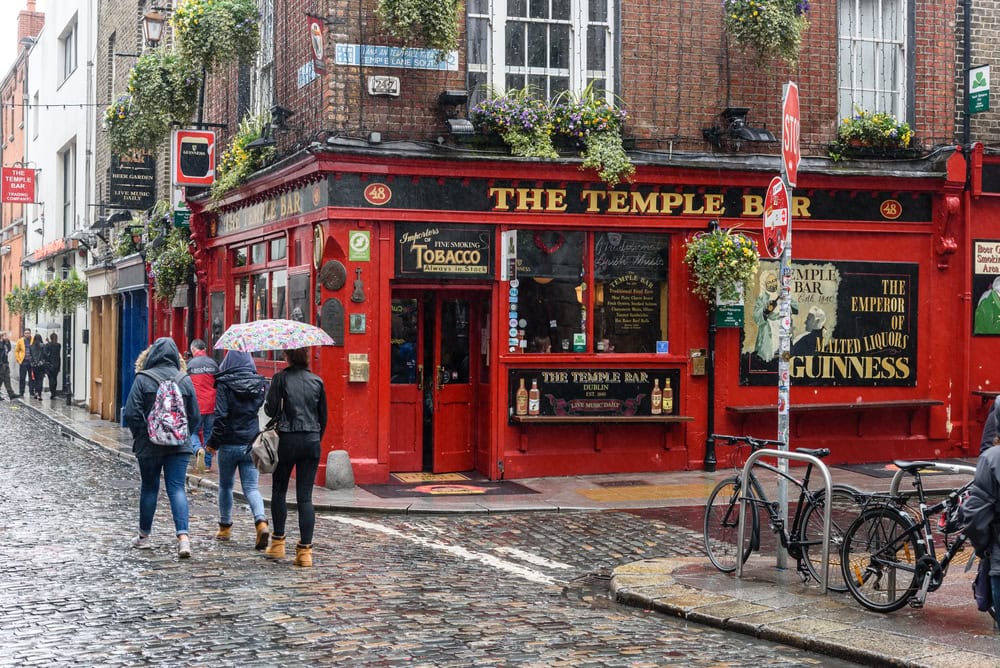
Gastropubs to try: The Stag’s Head in Dublin, The Exchequer in Dublin, and The Kings Head in Galway.
Traditional Irish Pubs with Food to try: O’Donoghue’s in Dublin, Johnnie Fox’s in Glencullen, and The Brazen Head in Dublin.
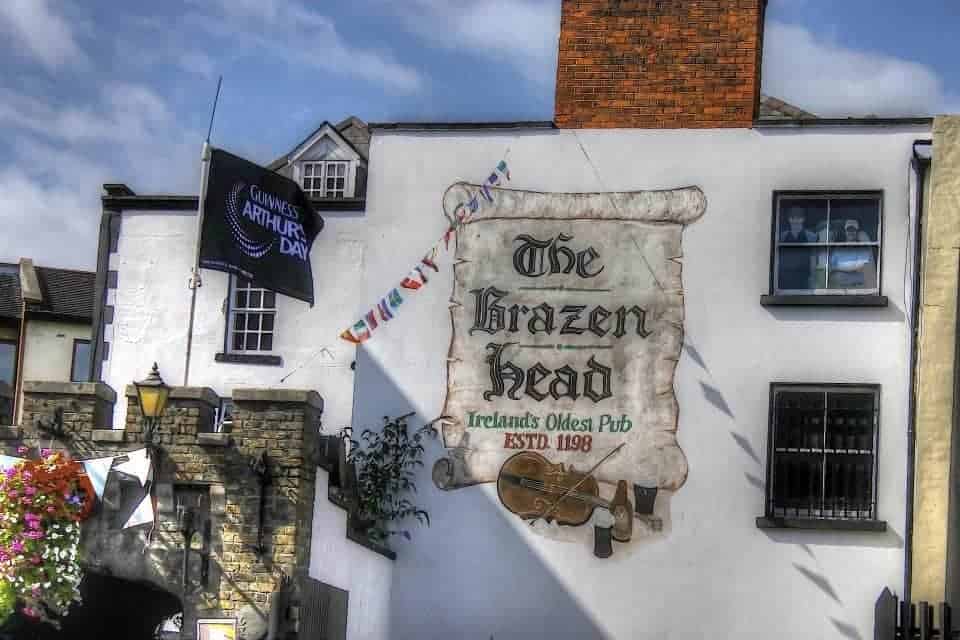
Pub Grub to try: Murphy’s Bar in Dingle, The Oliver Plunkett in Cork, and Matt The Thresher in Limerick.
Brewery Pubs to try: The Porterhouse in Dublin, The Franciscan Well in Cork, and Galway Bay Brewery pubs.
Hotel Pubs to try: The Shelbourne Hotel in Dublin, Ashford Castle in County Mayo, and Dromoland Castle in County Clare.
Tourist-Oriented Pubs: Temple Bar Pub in Dublin, The Quays Bar in Galway, and Kyteler’s Inn in Kilkenny.
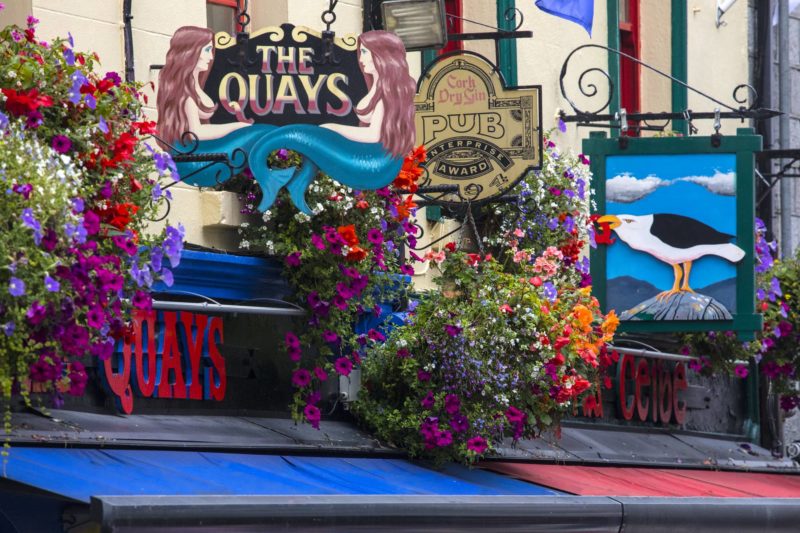
Cultural Insights and Etiquette
The culture of Ireland is rich, and diverse, it includes myths, literature, music, dance, art, food, and language and it is deeply embedded in modern Ireland. The first people arrived in Ireland about 9,000 years ago (around 7000 BC). We now call them Stone Age people because they used stone tools for their farm work and for hunting.
What not to do in Ireland
- 1. Don’t expect to drink all night. The majority of pubs close at 11:30 on weeknights and 1 am on the weekend.
Famous Pubs in Dublin for a pint and some craic
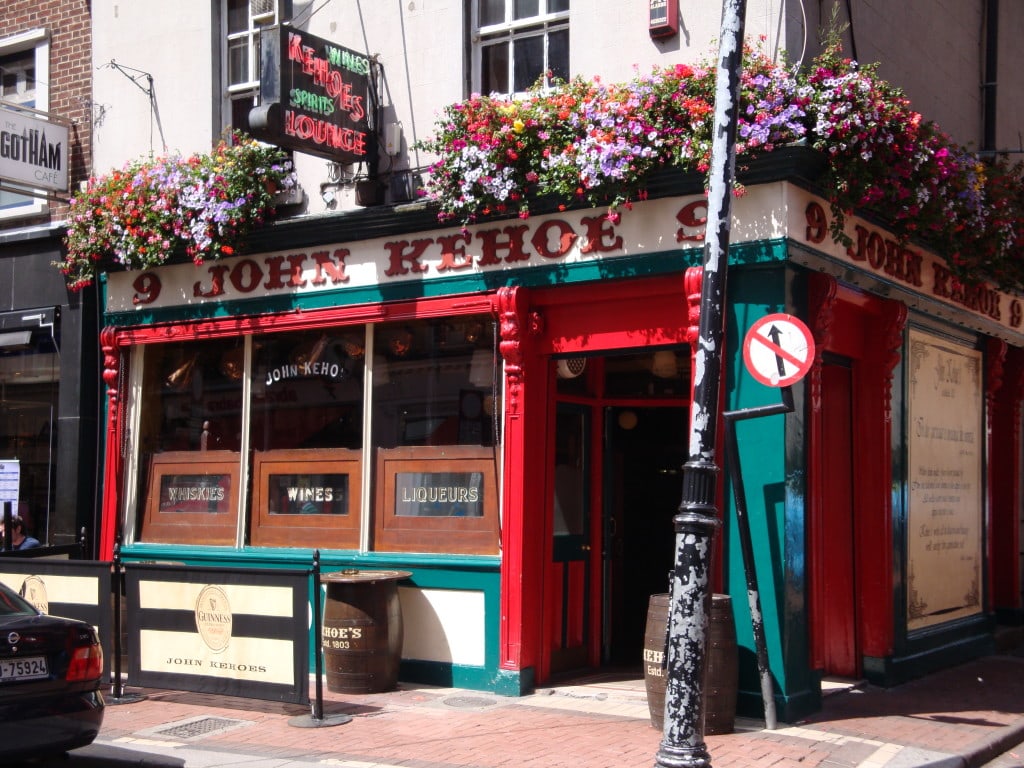
2. Don’t call an Irish man or woman, British or English this will cause great insult.
3. The Irish love a party and St. Patrick’s Day is a grand event with loads of craic. Enjoy the party but try not to drink too much.
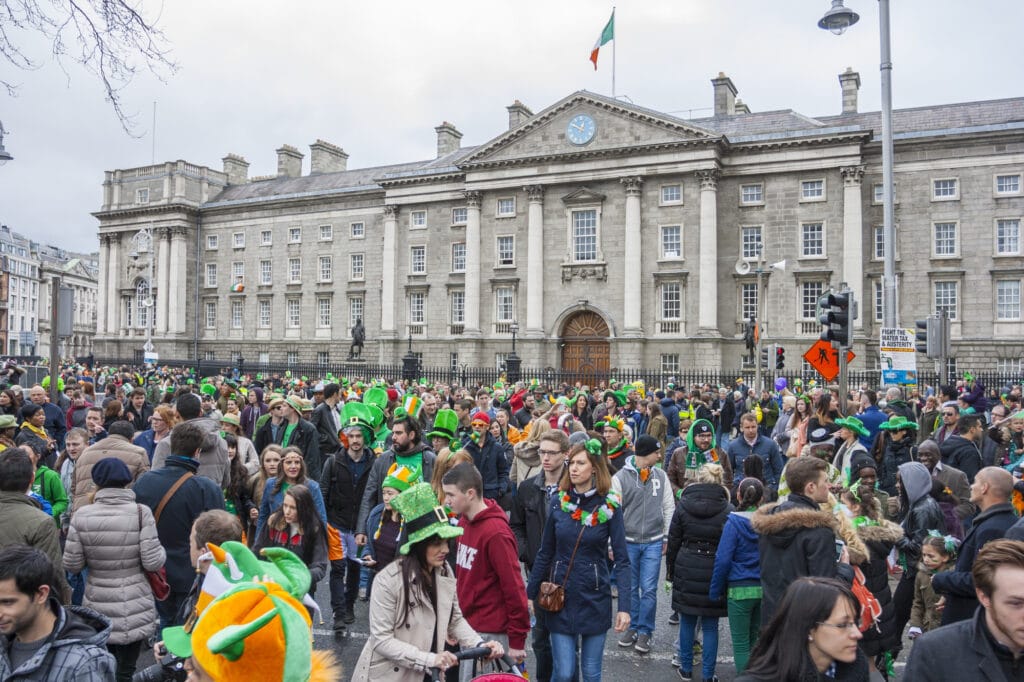
4. Don’t expect an “authentic” trad music session, these do not spontaneously drop from the skies you will be subjected to a canned version in most pubs. So choose carefully.
5. Don’t attempt to imitate an Irish accent, unless you have it down you will be thrown out of the pub.
6. Don’t not pay for a round in the pub when out with a group, this is just downright rude. It doesn’t matter if there are 12 people in the group a round is around. As mentioned by some commenters this may be a bit of an old fashioned thing to do but here in Donegal, we do it all the time unless there is an absolutely huge crowd.
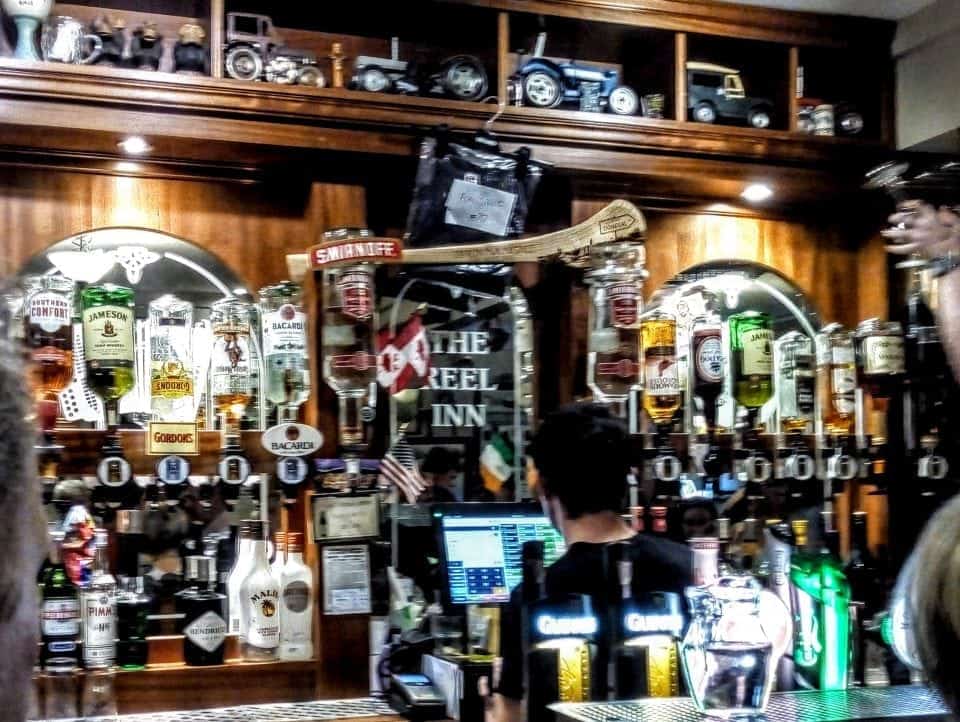
7. Don’t drive in Dublin the traffic is horrendous and those roundabouts are killers, and of course, they drive on the wrong side of the road. Don’t be afraid of driving in Ireland either – the roads can be narrow but take your time very little road rage here. But rent a car travelling in Ireland by public transport is difficult in many places.
8. Don’t expect the Irish not to take the piss. In other words, if an Irishman is not making fun of you they don’t like you.
9. Don’t go to Temple Bar for “authentic” Irish drinking experiences this is not the place, it is full of young trendy and tourists particularly when the sun goes down, avoid it at night. It’s also crazy expensive.
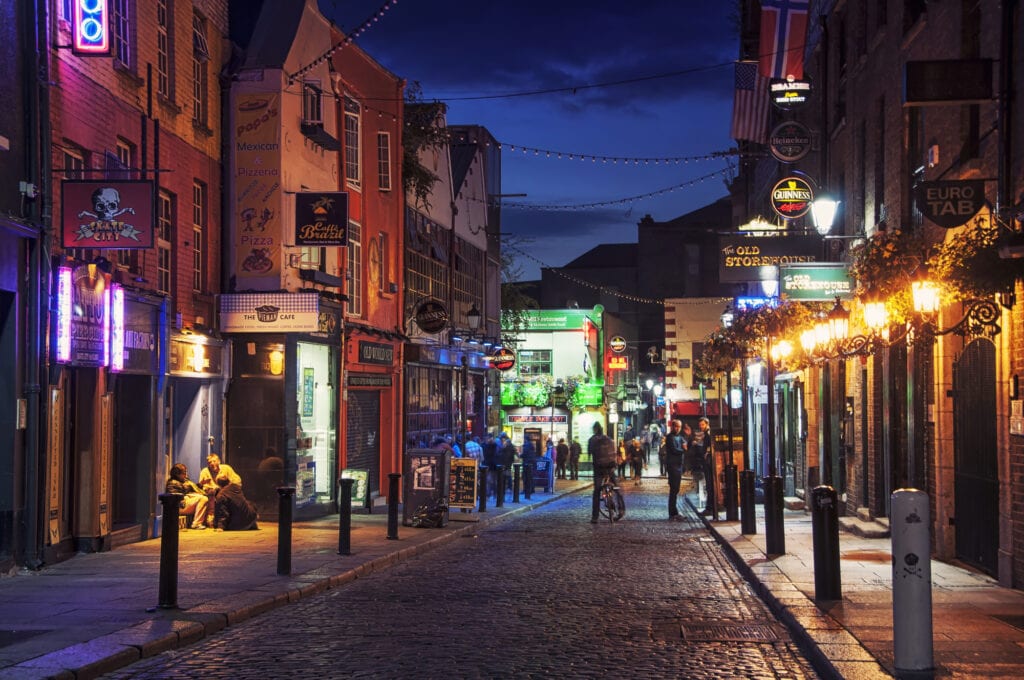
10. Don’t pay for Museum entry, most of Dublin’s Museums are free of charge.
11. Don’t expect to see much of the Book of Kells, they only turn over 2 pages a day and it may not be the illuminated pages you see. You can see a copy of the book itself in Kells village which does have illuminated pages on display.
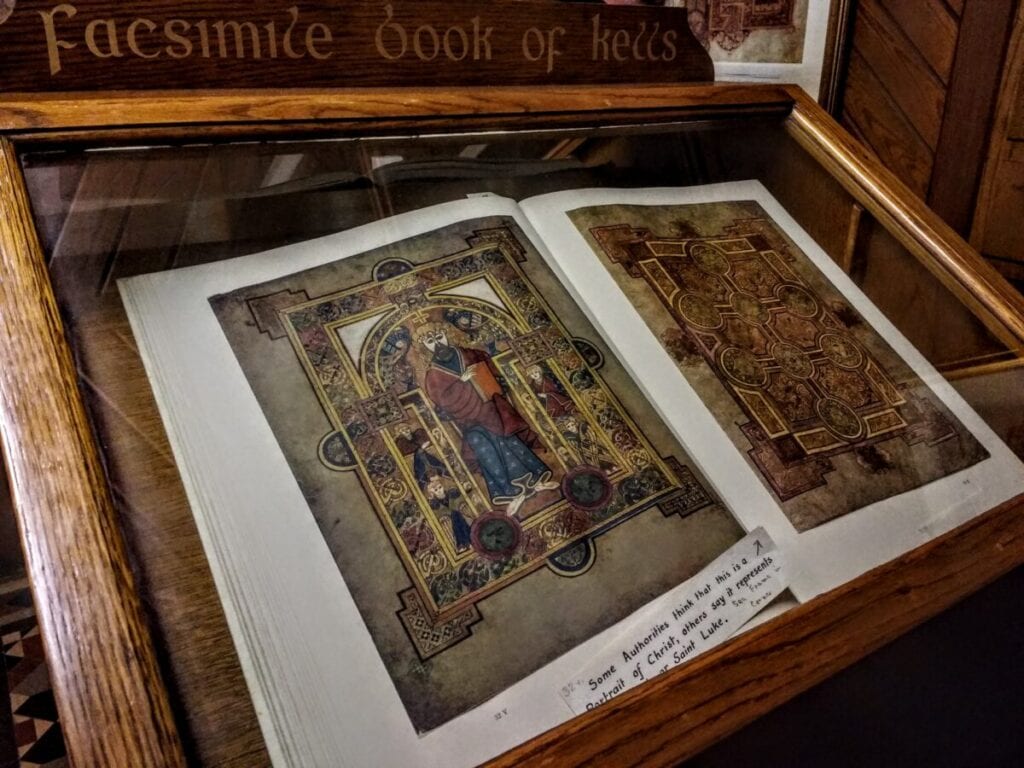
12. Don’t cross the street without looking the right way (or the left way) first, most streets are marked on the road which way to look – pay attention.
13. Don’t expect table service and a bill in the pub, you pay for your drinks, that you order at the bar, one at a time when you order. Pubs with food expect you to go to the bar, grab a menu, when you are ready you go up to the bar, tell them your table number and order.
14. Don’t tip in a pub, generally speaking, the accepted “tip” is to hand over enough to buy a drink and say “have one yourself”.
15. Don’t be surprised by the use of swear words, you will hear every kind of them around Dublin and a lot of them.
The Irish have certain “quirks” that sometimes puzzle North Americans, from the language, which includes many sayings and phrasings that have their roots in both Celtic and colonial history. You will hear a great deal of swearing in Ireland that you don’t run across in North America or the rest of Europe for that matter. The Irish have no filters in that regard.
Study up on the “banter” before you go, the definitive guide to Dublin Patter and Belfast Banter
16. The “craic” which is a tenet of Irish society means to search out the good times and enjoy them wholeheartedly. Other phrases you will hear are “yer man” and “yer other” which simply indicate him or her. The Irish are naturally friendly and gregarious people who love to chat and for this reason, you will see that many pubs are not set up with TV’s and loud music, the Irish believe that a visit to the pub is a chance to see what is happening in the community, converse with old friends and new and simply meet people.
17. I believe in doing your homework before you visit any country, but I simply cannot believe the number of tourists asking in pubs for an Irish Car Bomb – the sheer ignorance of this is mind-blowing all I can say is don’t just don’t and if you need to know why go and look it up.
18. Oh, and a final word on the subject, as one of my readers says don’t say “top of the morning to you” …..lol…..
Safety and Health Tips
Safety in Ireland for Travelers
General Safety
Ireland: Ireland is generally considered very safe for travelers. Crime rates are relatively low, and violent crime is rare. Common sense precautions should be taken, such as safeguarding personal belongings and being aware of your surroundings, particularly in crowded or tourist-heavy areas because pick pocketers are everywhere.
Northern Ireland: Similarly, Northern Ireland is safe for travelers. While the region has a history of political conflict, known as “The Troubles,” it has seen significant peace and stability since the Good Friday Agreement in 1998.
Health and Medical Services
Both Ireland and Northern Ireland have excellent healthcare services. Travelers should have travel insurance that covers medical expenses.
Emergency Numbers
Ireland
- Emergency Services (Police, Fire, Ambulance): 112 or 999
- Police (An Garda Síochána): 112 or 999 (same as emergency services)
- Coast Guard: 112 or 999 (same as emergency services)
Northern Ireland
- Emergency Services (Police, Fire, Ambulance): 112 or 999
- Police (Police Service of Northern Ireland – PSNI): 112 or 999 (same as emergency services)
- Coast Guard: 112 or 999 (same as emergency services)
Tips for Safe Travel
- Stay Informed: Keep up-to-date with local news and travel advisories.
- Secure Belongings: Use hotel safes for valuables and avoid carrying large sums of cash.
- Emergency Contacts: Keep a list of emergency contacts, including your embassy or consulate.
- Local Customs: Be respectful of local customs and traditions, especially in more conservative or rural areas.
- Health Precautions: Bring necessary medications and a basic first aid kit. Know the location of the nearest medical facilities.
Festivals and Events
- St. Patrick’s Festival
- When: March 17th (but often celebrated over several days around this date)
- Where: Nationwide, with Dublin hosting the largest celebrations.
- Galway International Arts Festival
- When: July
- Where: Galway City
- About: Celebrates the arts with theater, music, visual arts, and street performances.
- Fleadh Cheoil na hÉireann (All-Ireland Fleadh)
- When: August
- Where: Rotates among various cities, often held in Ennis, County Clare, and Drogheda, County Louth.
- About: The largest traditional Irish music festival, featuring competitions, concerts, and sessions.
- Cork Jazz Festival
- When: October
- Where: Cork City
- About: One of Europe’s oldest jazz festivals, featuring international and local jazz acts.
- Dingle Food Festival
- When: October
- Where: Dingle, County Kerry
- About: Celebrates local food and drink with tastings, demonstrations, and food stalls.
Festivals in Northern Ireland
- Belfast Festival at Queen’s
- When: October
- Where: Belfast
- About: A diverse arts festival featuring theater, music, dance, and visual arts performances.
- Belfast Pride Festival
- When: July/August
- Where: Belfast
- About: Northern Ireland’s largest LGBT+ festival, celebrating diversity and equality.
- Feile an Phobail (West Belfast Festival)
- When: August
- Where: Belfast (mainly in West Belfast)
- About: Ireland’s largest community arts festival, celebrating culture, arts, and community spirit.
- Culture Night Belfast
- When: September
- Where: Belfast (and other cities across Northern Ireland)
- About: A night of free cultural events, including music, art exhibitions, workshops, and more.
Budgeting and Money Matters
As I mentioned before if you are in the Republic of Ireland the currency is Euros and in Northern Ireland pounds sterling. Mastercard and Visa are most common across the country and American Express is rare. There are many ATM’s across the country from which you can draw euros or pounds but check with your bank what the exchange rate might be and here are my best tips.
Using ATMs and credit cards in Ireland is convenient and widely accepted, but it’s important to understand the best practices to ensure smooth transactions and avoid unnecessary fees.
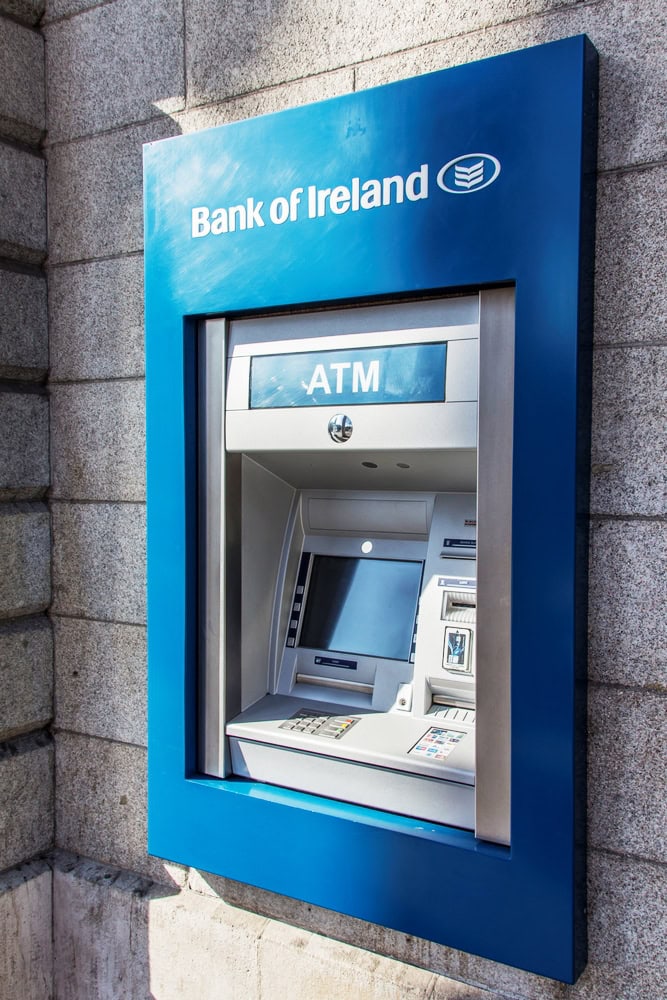
Using ATMs in Ireland
1. Finding ATMs: ATMs are plentiful in Ireland, especially in urban areas, towns, and tourist destinations. They can be found at banks, convenience stores, and in shopping centers. Look for ATMs affiliated with major networks like Visa, Mastercard, Cirrus, or Maestro.
2. Choosing ATMs: Opt for ATMs that are located within banks or reputable locations to minimize the risk of tampering or skimming devices. Avoid standalone ATMs in remote or poorly lit areas.
3. Transaction Fees: Check with your bank about international ATM fees and currency conversion fees. Some banks may have partnerships with international networks that reduce or waive these fees. It’s also advisable to withdraw larger amounts less frequently to minimize fees.
4. Currency Conversion: When prompted by the ATM, choose to be charged in the local currency (Euro, EUR) rather than your home currency (if given the option). This helps you avoid dynamic currency conversion fees, which are often less favorable than your bank’s exchange rate.
5. Security Measures: Always shield your PIN while entering it, and be aware of your surroundings. If the ATM appears tampered with or suspicious, do not use it and report it to the bank or authorities.
Using Credit Cards in Ireland
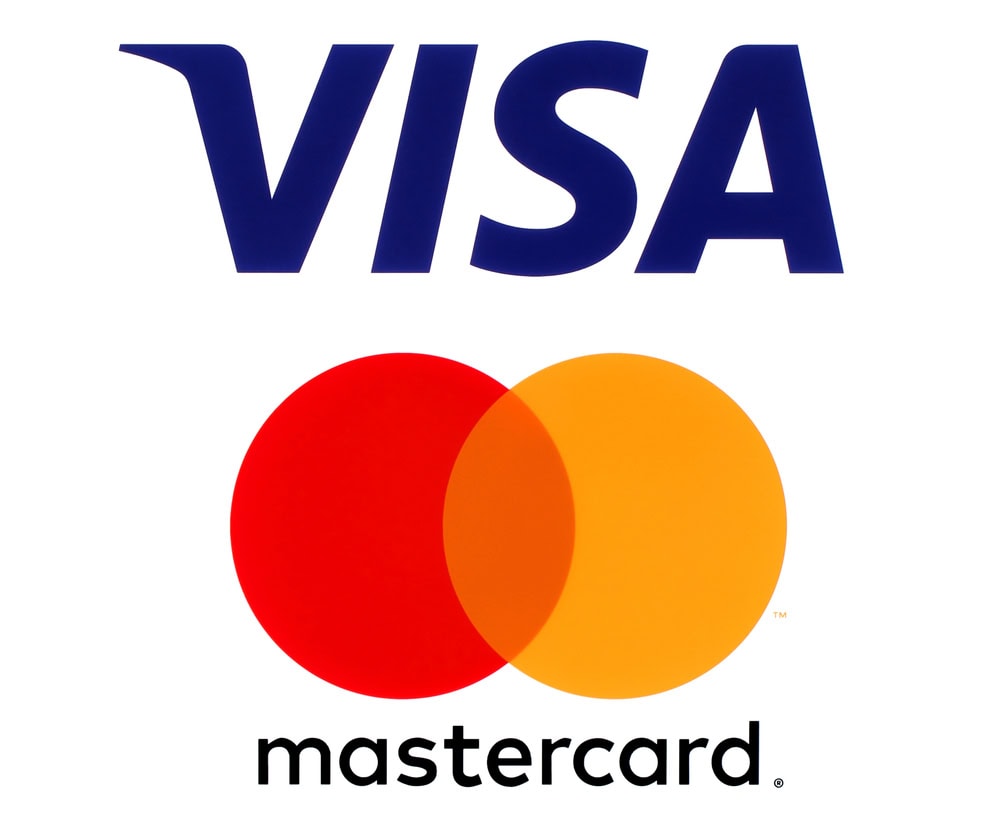
1. Acceptance: Credit cards (Visa, and Mastercard) are widely accepted in Ireland, particularly in hotels, restaurants, shops, and tourist attractions. However, smaller establishments like local pubs and some B&Bs may prefer cash.
2. Chip and PIN: Most credit card transactions in Ireland require a chip and PIN for security. Contactless payments are also increasingly common, especially for smaller purchases.
3. Foreign Transaction Fees: Check your credit card terms regarding foreign transaction fees. Some cards offer no foreign transaction fees or provide rewards points on international purchases, which can be beneficial.
4. Emergency Contacts: Keep your bank’s contact information handy in case your card is lost or stolen. Many banks have dedicated international customer service lines that can assist you 24/7.
5. Currency Conversion: Similar to ATMs, if given the option to pay in your home currency or Euro, choose Euro to avoid dynamic currency conversion fees.
6. Security Tips: Monitor your credit card statements regularly for any unauthorized transactions. Notify your bank immediately if you notice any suspicious activity.
By following these guidelines, you can confidently use ATMs and credit cards in Ireland, ensuring convenience and financial security during your travels. Always plan ahead, check your bank’s policies, and prioritize safety to make the most of your financial transactions abroad.
Budget for your trip to Ireland
Average costs of meals and activities in Ireland
The average costs of meals and activities in Ireland can vary depending on the location (city vs. rural), type of establishment, and your personal preferences. Here’s a general overview of what you might expect to spend:
Meals
- Breakfast:
- At a café or restaurant: €5-€15 per person
- At a hotel (if not included): €10-€20 per person
- Lunch:
- Sandwich or light meal: €6-€12
- Restaurant or pub lunch: €10-€20
- Dinner:
- Casual dining (pubs, bistros): €15-€30 per main dish
- Mid-range restaurant: €20-€40 per main dish
- Fine dining: €40 and up per main dish
- Fast Food:
- Burger meal: €8-€12
- Pizza: €8-€15
Activities
- Museum or Gallery Admission:
- National museums and galleries: Often free or €5-€10 donation
- Specialized museums: €5-€15
- Guided Tours:
- City walking tours: €10-€20 per person
- Day tours to attractions: €30-€70 per person
- Outdoor Activities:
- Entry to national parks or gardens: Free or €5-€10
- Adventure activities (e.g., hiking tours, boat trips): €20-€50 per person
- Cultural Events:
- Concerts or theater tickets: €15-€50 depending on the event and seat location
- Festivals: Prices vary widely; some events may be free while others require tickets
Other Expenses
- Accommodation:
- Budget: €40-€100 per night for hostels or budget hotels
- Mid-range: €100-€200 per night for hotels or guesthouses
- Luxury: €200 and up per night for upscale hotels or boutique accommodations
- Transportation:
- Public transport: €2-€5 per trip within cities
- Inter-city trains or buses: €20-€50 depending on distance
- Car rental: €30-€70 per day depending on the vehicle and rental company
- Souvenirs and Gifts:
- Small items: €5-€20
- Handcrafted goods: Prices vary; expect to pay more for high-quality items
Tips for Budgeting
- Dining: Consider lunch specials, early bird menus, or self-catering options to save money.
- Activities: Look for free or discounted days at museums and galleries, and explore outdoor activities in national parks and scenic areas.
- Transport: Consider purchasing transport passes for cities or booking transportation tickets in advance for longer journeys.
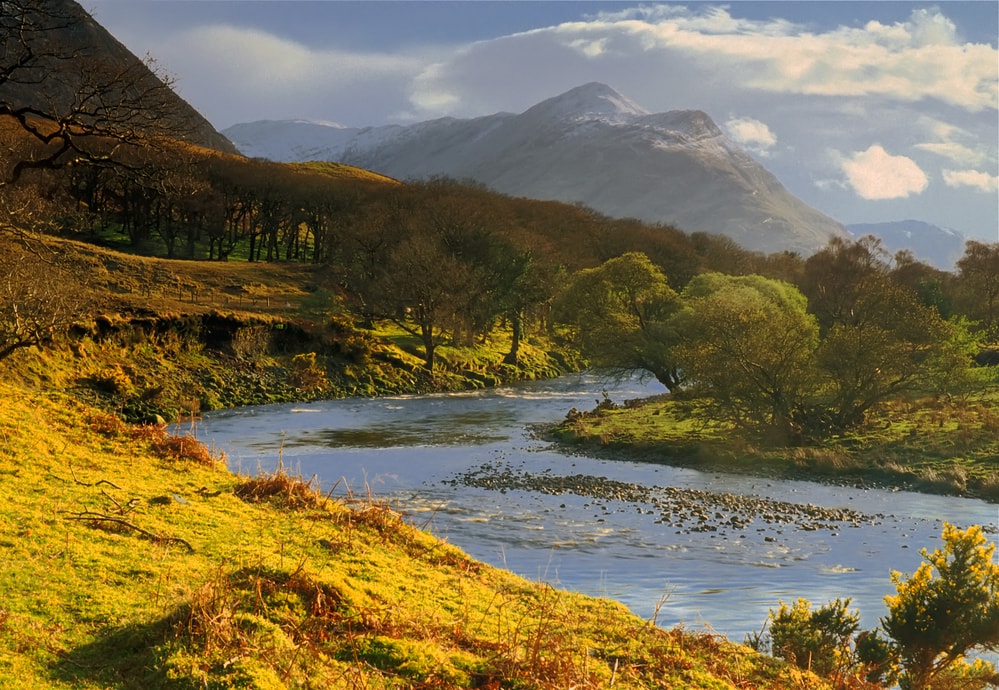
Overall, while Ireland can be relatively expensive, especially in major cities like Dublin, you can manage your budget effectively by planning ahead, opting for budget-friendly options when possible, and enjoying the many free or low-cost cultural and natural attractions available throughout the country.

